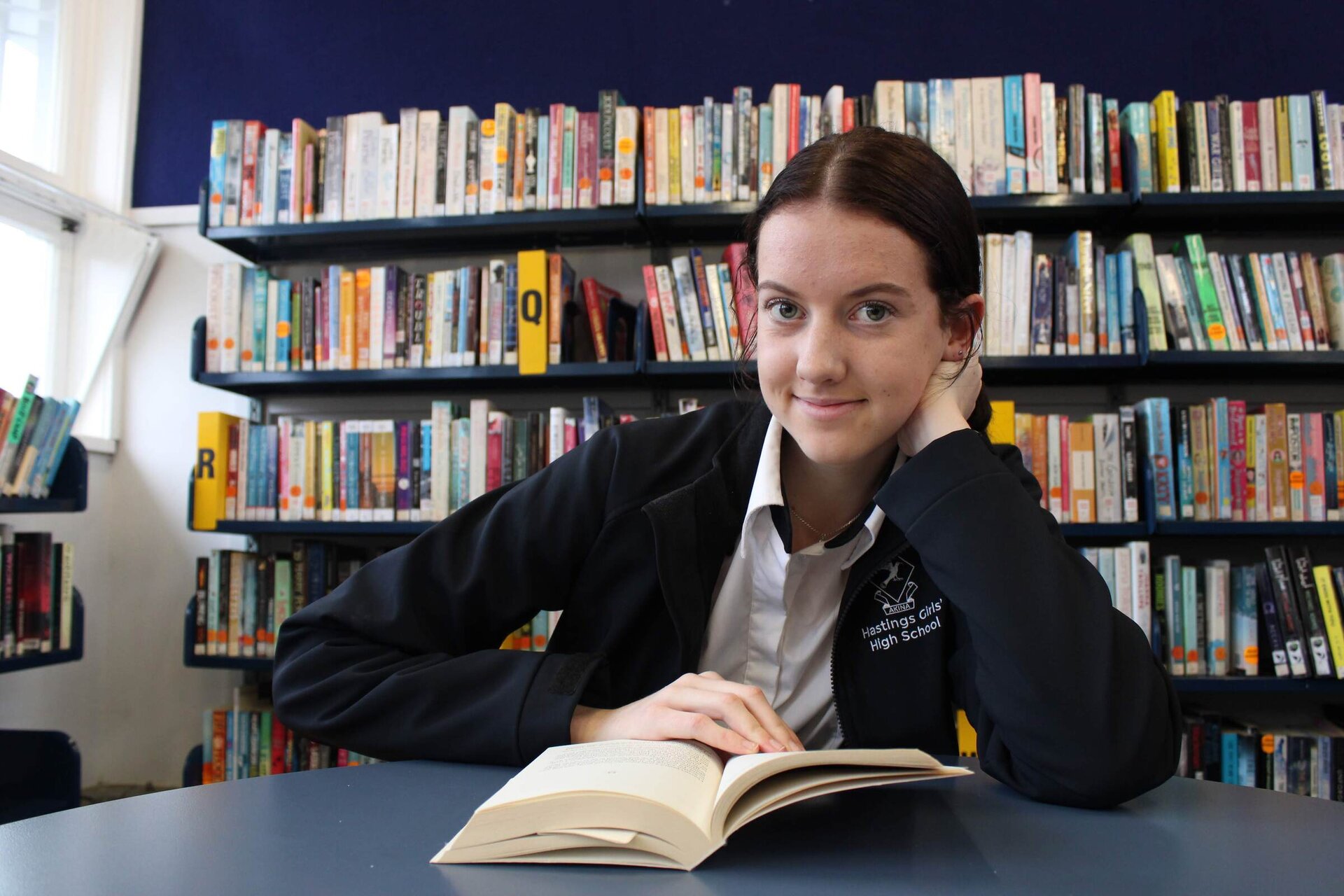Senior Curriculum
Welcome to the Senior Curriculum at Hastings Girls' High School - Ngā Rau Huia O Ākina
Our Senior curriculum is all about pathways—designed to support every student in reaching their full potential, whether they aim for university, vocational training, or direct entry into the workforce. With a wide range of subjects, including unique offerings like Psychology, we encourage students to pursue their passions and build the skills needed for future success. Our flexible learning approach allows students to tailor their NCEA journey to their interests, with opportunities to accelerate learning, take on Scholarship challenges, and explore dual enrollment options. At Hastings Girls' High School, we ensure that every student is empowered to choose a path that leads to excellence.
Senior Subject Pathways
At Hastings Girls' High School, we understand that every student's journey is unique. Our senior subject selection process is designed to help you build the foundation for your future, whether you aim to enter the workforce, pursue trades, or enrol in polytechnic courses, or continue your academic journey towards university.
Pathways Overview
Level 1
In Year 11, all students begin with Level 1 courses, gaining essential knowledge and skills across a broad range of subjects. As you move into Level 2, you’ll have the opportunity to choose a pathway that aligns with your personal goals and aspirations.
Level 2: Vocational and Academic Pathways
At Level 2, you can choose between two distinct pathways:
Vocational Pathway
Designed for students planning to enter the workforce, take up apprenticeships, trades, or enrol in polytechnic courses after school.
Courses in this pathway focus on practical skills and industry based learning to prepare you for a seamless transition into your chosen career.
As part of this pathway, you can participate in the Gateway programme, which provides real-world work experience and learning opportunities through industry placements.
Examples of subjects include Trades, Gateway, Hospitality, and Travel and Tourism.
Academic Pathway
Tailored for students who are preparing for university entrance and are looking for academically challenging subjects.
These courses develop critical thinking, research, and analytical skills that will set you up for success in tertiary education.
Examples of subjects include Sciences, Calculus, Business, and Languages.
Level 3: Deepen Your Specialisation
At Level 3, your chosen pathway becomes more focused, preparing you for life after school:
Vocational Pathway: Further specialised courses that match industry standards and focus on hands-on learning and practical skills, such as Trades, Engineering, Early Childhood Education, or the Armed Forces. The Gateway programme continues to offer valuable work placements.
Academic Pathway: Advanced courses to deepen your understanding in subjects that support university entrance requirements, such as Chemistry, History and Psychology.
Explore Your Options
Our dedicated career advisors and teachers are here to help you make informed choices. Whether you're interested in a vocational career or aiming for academic excellence, Hastings Girls' High School provides the support and guidance you need to succeed.
Vocational Pathway Students: Learn about trades, apprenticeships, Gateway opportunities, police courses and partnerships with local industries.
Academic Pathway Students: Explore scholarships, university entrance requirements, and preparatory programmes.
START YOUR JOURNEY TODAY!! By choosing the right subjects now, you are setting the course for a future that fits your goals and dreams.
Senior subject choices
Welcome to the Senior Subjects page, where you can explore the courses available to our senior students as they prepare for their future pathways. Below, you'll find a comprehensive list of academic and vocational subjects designed to help you progress towards your goals—whether you're aiming for university, trades, or the workforce. Each course outlines key details, including what the subject leads to and whether it aligns with academic or vocational pathways, giving you the guidance you need to make informed decisions about your educational journey.
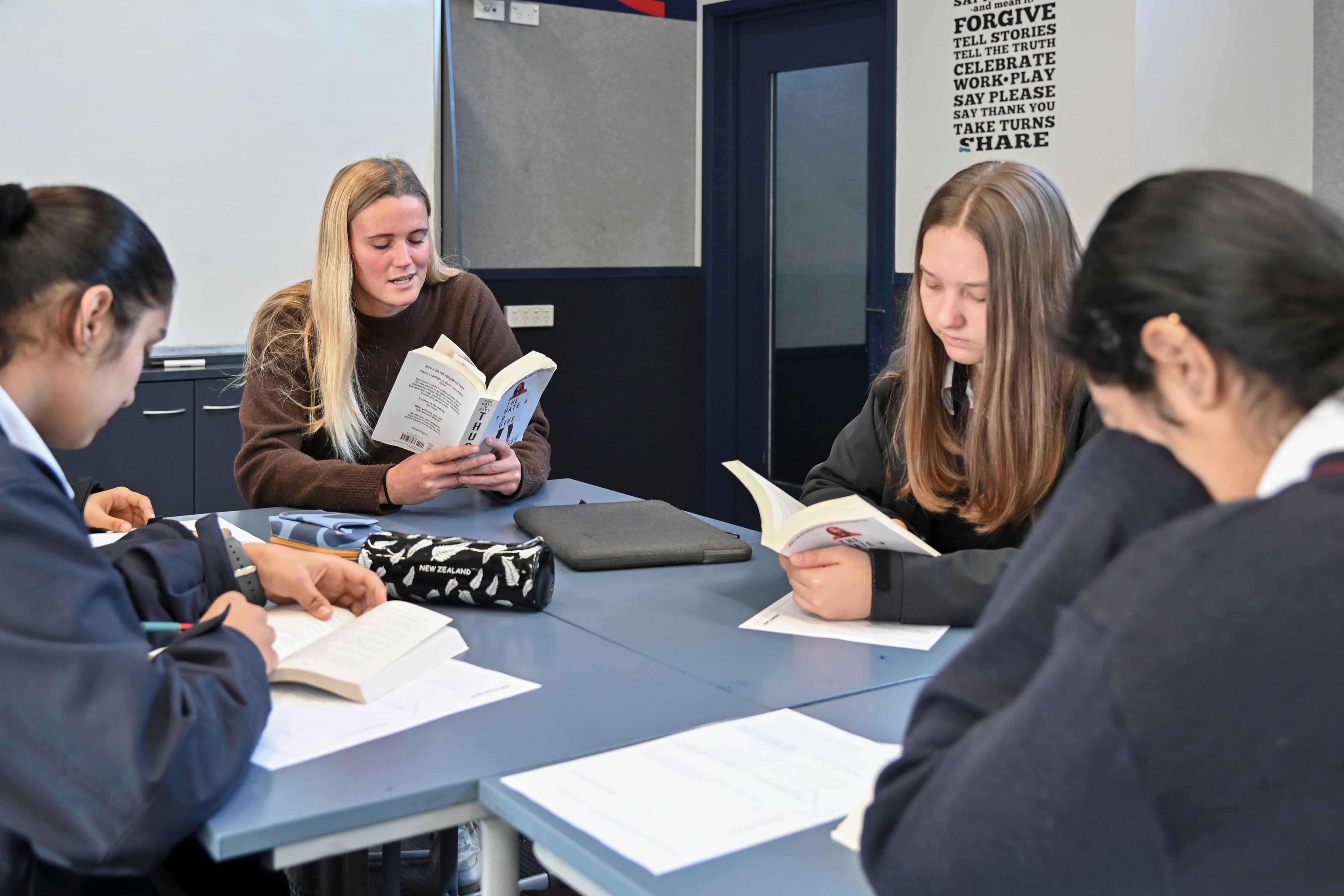
ENGLISH
English helps you to find a voice to tell your stories; a voice that can be creative, critical and inspirational. We want you to extend your imagination through language and literature of all kinds and to become sophisticated speakers and writers. English connects you to a world of ideas through a range of cultural literature that challenges you to think about your own sense of identity, your relationships with others and your place in the world. Through English, you will be able to unlock the skills that enable you to successfully participate in the social, cultural, and political life of New Zealand and the wider world.
Level 1
English
With the new NCEA, our Level 1 English course is designed to develop your communication and analytical skills as you explore a range of different texts. You will understand how creators express messages and share their different voices from Māori, Pasifika, European and other writers and film directors, and discuss the issues raised. You will cover a range of writing both creative and formal. You will have the opportunity to develop your own voice through different genres of writing and speaking. Whilst we cover a range of texts, you will have the opportunity to follow your own passions with a choice of texts and ideas for you to explore.
Entry Guidelines: No entry guidelines
Leads to: Level 2 English through Diversity or English for the Workplace
Teacher in Charge: Miss J Cross
Course Code: 1EN
Level 2 Academic Pathway
English through Diversity
Our Level 2 English course will allow students to continue their study of ideas and relevant issues from across the world such as (and not limited to!) powerful women, impacts of colonisation, climate change and Manaakitanga. These issues will be studied through visual, written and oral texts. Choice is important and in our programme, you will have choice over issues and texts that you wish to enjoy and explore so you can really engage with your learning. You will continue to develop our communication and literacy skills as you work towards your University Entrance Literacy which is integrated into the course schedule.
Entry Guidelines: No entry guidelines
Leads to: Level 3 English and the World or English and the Community
Teacher in Charge: Miss J Cross
Course Code: 2ENTD
Level 2 Vocational Pathway
English for the Workplace
This course is for students who would like to further develop their reading, writing and interpretation skills, focusing on those that would be beneficial for the workplace. This course has some flexbility, offering learning from both unit and achievement standards.
Entry Guidelines: No entry guidelines
Leads to: Level 3 English for the Workplace
Teacher in Charge: Ms J Cross
Course Code: 2ENWK
Level 3 Academic Pathway
English and World Issues
This Level 3 English course is designed for students who have an interest in English and the language arts. You will work towards achieving your University Entrance credits through a programme that teaches and encourages critical thinking of engaging and relevant ideas. You will study literature, feminism, identity, corporate greed, exploitation and more through both written and visual texts. Your voice is important and you will learn how to craft it as you develop your own style and expression. Credits are earned through both internal and external assessment. Students who have a passion for English and still want to gain their UE Literacy have the opportunity to work towards this as an alternate pathway, whilst still savouring the messages and learnings of the programme.
Entry Guidelines: UE Literacy through English - students without UE Literacy may join the course at the HOD discretion
Leads to: Tertiary studies in a range of courses
Teacher in Charge: Miss J Cross, Ms S Williams
Course Code: 3ENWI
Level 3 Vocational Pathway
English and the Community
This course is for students who would like to further develop their reading, writing and interpretation skills, focusing on those that would be beneficial for the workplace. This course has some flexbility, offering learning from both unit and achievement standards.
Entry Guidelines: No entry guidelines
Teacher in Charge: Ms J Cross
Course Code: 3ENTC
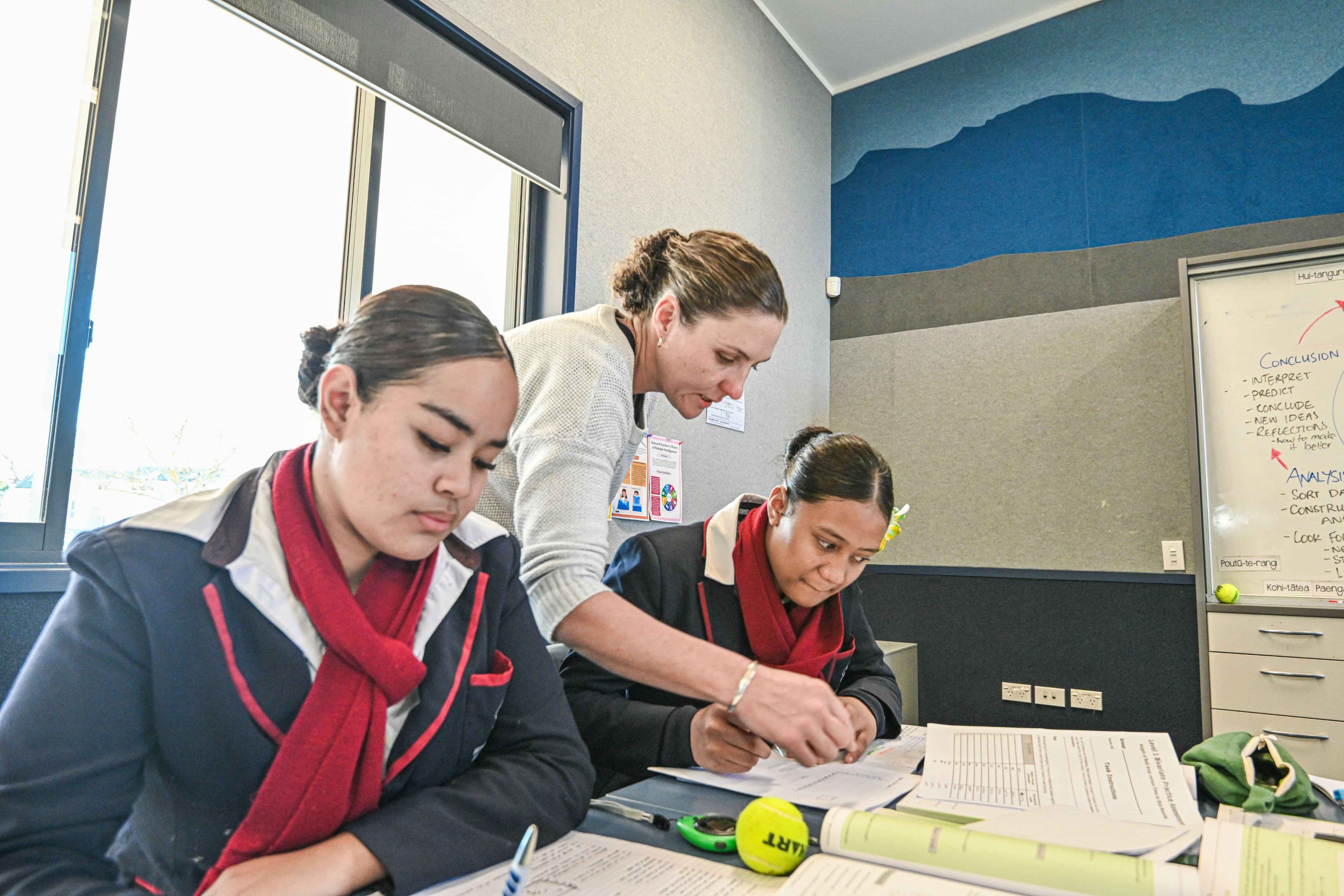
MATHEMATICS
Mathematics is the exploration and use of patterns and relationships in quantities, space, and time. Statistics is the exploration and use of patterns and relationships in data. These two disciplines are related but involve different ways of thinking and solving problems. Both equip ākonga with effective means for modelling, analysing, and interpreting the world in which they live.
Mathematicians and statisticians use symbols, graphs, displays, and diagrams to help them find and communicate patterns and relationships. They evaluate information to make informed decisions and create models to represent both real-life and hypothetical situations. These situations are drawn from a wide range of social, cultural, scientific, technological, environmental, and economic contexts.
The Learning Area's whakataukī is:
Kei hopu tōu ringa ki te aka tāepa, engari kia mau ki te aka matua.
Cling to the main vine, not the loose one.
This whakataukī comes from the pūrākau of Tāne's ascent to the heavens to collect te kete ngā mātauranga, or the baskets of knowledge. The main vine is strong and has secure foundations, whereas the loose vine can be buffeted by the wind, so anyone climbing it will not reach the top. The pūrākau helps to illustrate that knowledge, as in te kete ngā mātauranga, is a taonga, and to show the need for hard work and problem-solving to gain solid knowledge.
Level 1
Mathematics
This course is designed for students who did well in algebra in the junior school and are wanting to pursue tertiary study in the fields of Mathematics, Physical Sciences, and Engineering. You will learn to apply formulas, investigate relationships between variables, and develop some statistical and probability skills. This course is the first step towards Calculus, Statistics or Money Matters.
Materials: Casio Graphical Calculator ($120) and a workbook ($10)
Entry Guidelines: Completed Year 10 Algebra and Geometry topics reaching NZ Curriculum Level 5 or higher
Leads to: Level 2 Maths with Calculus and Maths with Statistics
Teacher in Charge: Mrs V Peffer
Course Code: 1MA
Level 2 Academic Pathway
Maths with Calculus
This course is designed for students who successfully completed the Level 1 Mathematics with Algebra course and are considering doing tertiary study in Mathematics, Physical Sciences, and Engineering. You will study algebraic manipulations, geometry, calculus and do some statistics topics.
Entry Guidelines: Achievement in both externals in Level 1 Maths with Algebra or Maths for Living
Leads to: Level 3 Calculus or Level 3 Statistics
Teacher in Charge: Mrs V Peffer
Course Code: 2MACL
Maths with Statistics
This course is designed for students to further develop their statistics and probability skills. You will be investigating and analysing data, evaluating a wide range of statistical reports, and increasing your knowledge of probability concepts. It is an important subject for students who will need to use statistical analysis for their future career choice.
Entry Guidelines: Achievement in one external from either Level 1 Maths with Algebra or Maths with Statistics or Maths for Living
Leads to: Level 3 Statistics
Teacher in Charge: Mrs V Peffer
Course Code: 1MAST
Level 2 Vocational Pathway
Money Matters
You will learn about everything to do with your personal finances now and into the future. Studies will cover topics such as personal income, banking and taxes, as well as budgeting and insurance options to ensure that you protect yours and your family’s future wellbeing.
This course assesses unit standards and does not have any end-of-year exams.
Entry Guidelines: Achievement in internals in Level 1
Leads to: Level 3 Money Matters
Teacher in Charge: Mrs V Peffer
Course Code: 2MAMO
Level 3 Academic Pathway
Maths with Calculus
This course is designed to prepare students for tertiary study in the fields of Mathematics, Physical Sciences, and Engineering. As it includes the theory of Calculus, it assumes that the students have a good grasp of algebra, calculus, and graphing from the Level 2 Mathematics with Calculus course.
Entry Guidelines: Achievement in two externals from Level 2 Maths with Calculus
Leads to: Tertiary studies and any professional career
Teacher in Charge: Mrs V Peffer
Course Code: 3MACL
Math with Statistics
This course is designed for students who want to use statistics for tertiary studies or further develop their statistical skills that are required for their career pathway choice. You will be looking at probability modelling and concepts, analysis of statistical reports, linear programming, experiments, and political polls.
Entry Guidelines: Achievement in one external from Level 2 Maths with Statistics or Maths with Calculus
Leads to: Tertiary studies and any professional career
Teacher in Charge: Mrs V Peffer
Course Code: 3MAST
Level 3 Vocational Pathway
Money Matters
In this course you will study smart ways to manage your income and how you could potentially increase future income from smart investments and managing debt through carefully planned, budgeting for long term financial goals.
This course assesses unit standards and does not have an end-of-year exam.
Entry Guidelines: Level 2 Money Matters
Leads to: Tertiary study, vocational courses, defence forces and the workplace
Teacher in Charge: Mrs V Peffer
Course Code: 3MAMO
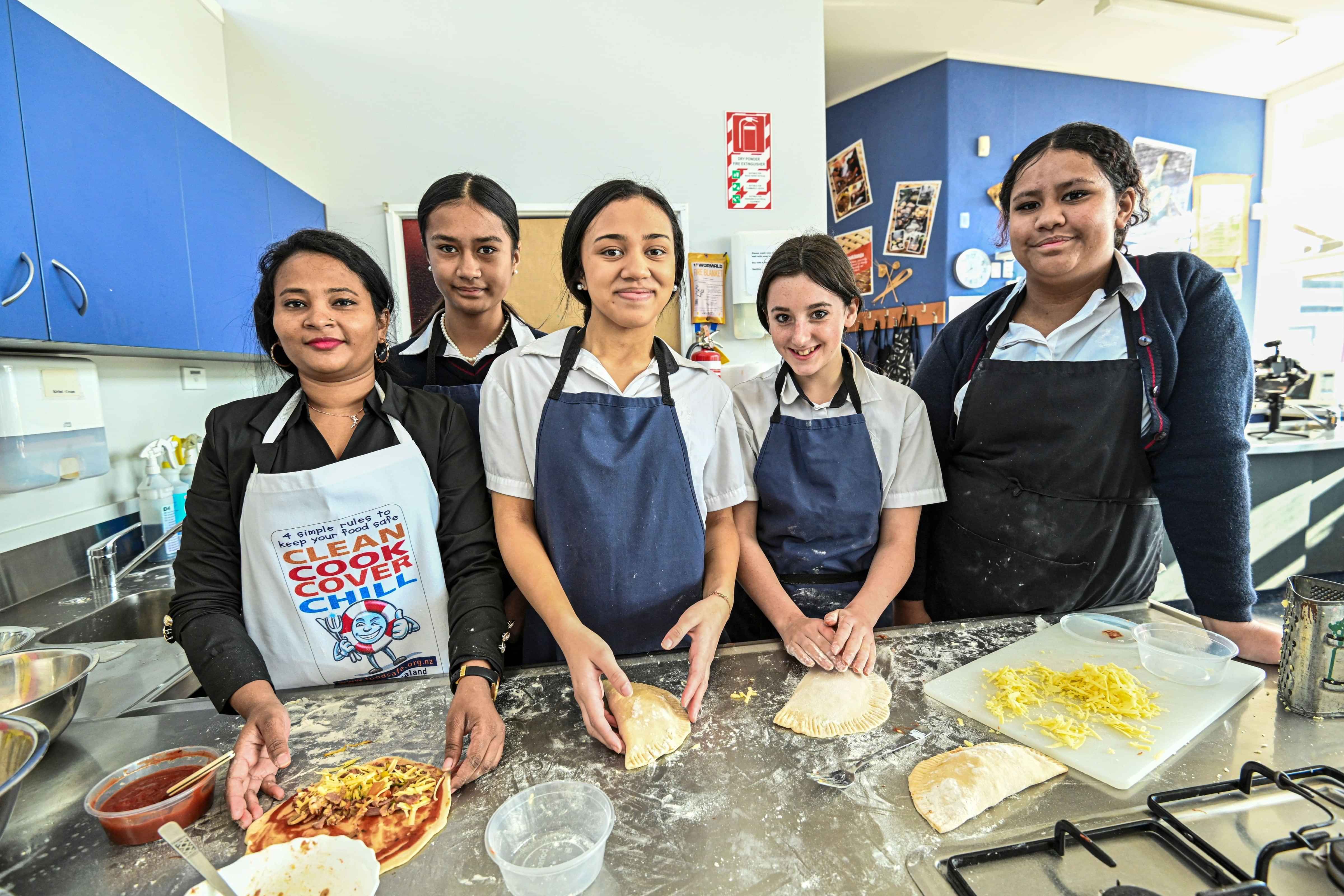
TECHNOLOGY
Technology is about creativity and innovation. It is about how we intervene with our world using design, and how our world intervenes with, influences, and changes (even designs) us. Technology learning is about gaining a deep insight into our world, being analytical and accountable for the decisions we make as we intervene, asking always, “if we can do something, should we?”
In Technology students develop outcomes across contexts that interest them. Students gain practical skills, knowledge, and understanding to thoughtfully live with, critique, and contribute to the technological developments that shape our lives.
Level 1
Design and Visual Communication
In Level One D.V.C you will explore where ideas come from, develop understanding of the design process and how to communicate your ideas to others visually. You will also explore maker technology through working with a range of different materials such as wood, glass, plastics and textile fibres.
Cost and Materials: TBC
Entry Guidelines: TBC
Leads to: This course leads on to Level 2 courses in D.V.C and Maker Tech
Teacher in Charge: TBC
Course Code: 1DVC
Nutritional Technology
In Nutritional Technology you will learn about the science behind the food we eat. You will look at how food affects our wellbeing and behaviour, as well as how new food products are developed. You will use the technology process in the creation of food products to meet nutritional requirements and learn to process products in a safe manner.
Entry Guidelines: No entry requirements
Leads to: Level 2 and 3 Nutritional Technology or Level 2 Integrated Technology
Teacher in Charge: Mrs S Devi
Course Code: 1NTECH
Digital Tech
Digital technology students will develop practical skills and understanding of software that is commonly used in workplaces by working to gain Microsoft Credentials. This is a great addition to your C.V. and will show future employers that you are comfortable around computers and their role in the workplace.
Students will also use the technology process to explore the areas of web design, animation and programming to solve technological problems that are inspired by local stories and traditions.
Cost and Materials: TBC
Entry Guidelines: TBC
Leads to: Digital Tech Level 2
Teacher in Charge: TBC
Course Code: 1DIGI
Level 2 Academic Pathway
Design and Visual Communication
Level two D.V.C focusses in on the contexts of spatial design (architecture, landscape) and product (furniture, fashion, industrial) design. You will develop your design process to explore and refine designs using the specialist knowledge required in these design fields. Visual communication strategies such as computer modelling, sketching, technical drawing and physical modelling, will be utilised to communicate your ideas to others.
Cost and Materials: Students may want to purchase specialist stationery
Entry Guidelines: Level 1 DVC helpful but not essential
Leads to: Level 3 DVC, Maker Tech and to Trades and Gateways courses
Teacher in Charge: Ms J Garbutt
Course Code: 2DVC
Nutritional Technology
In Nutritional Technology you will learn about the science behind the food we eat. You will look at how food affects our wellbeing and behaviour, as well as how new food products are developed. You will use the technology process in the creation of food products to meet nutritional requirements and learn to process products in a safe manner.
Entry Guidelines: No entry requirements
Leads to: Level 3 Nutritional Technology
Teacher in Charge: Mrs S Devi
Course Code: 2NTECH
Digital Tech
Students will take the skills and processes learnt at level one to further their creative skills in digital spaces. Students will combine multiple media types using Industry standard Adobe and Microsoft software to create individual and unique solutions that solve a wide variety of unique and relevant problems. Students may also choose to use other Technological tools such as laser or vinyl cutters to complement their design work. Students will continue develop practical skills and understanding of software that is commonly used in workplaces by working to gain Microsoft Credentials.
Cost and Materials: TBC
Entry Guidelines: TBC
Leads to: Level 3 Digital Tech
Teacher in Charge: TBC
Course Code: 2DIGI
Level 2 Vocational Pathway
Maker Tech
In Maker Tech students will have the opportunity to explore their place in the maker movement, utilising a range of materials, tools and machines. If you enjoy making, this is the place for you. Students can choose to specialise in one material or area (such as embroidery, fashion or woodworking) or you can experiment across materials. You will test your ideas, make prototypes and work to create high quality finished artefacts.
Cost and Materials: Students may need to purchase specialist materials and resources for products they make and take home
Entry Guidelines: No entry requirements
Leads to: Level 3 Maker Tech
Teacher in Charge: Ms J Garbutt
Course Code: 2MTECH
Level 3 Academic Pathway
Design and Visual Communication
In Level 3 DVC you will choose to specialise is either spatial design (architecture, landscape) and product (furniture, fashion, industrial) design. You will use specialist knowledge and design practices to create resolved designs that consider human factors and environmental conditions. Visual communication strategies such as computer modelling, sketching, technical drawing and physical modelling, will be utilised to communicate and exhibit your designs to others.
Cost and Materials: Students may want to purchase specialist stationery
Entry Guidelines: Level 2 DVC helpful but not essential
Leads to: This course is a university entrance approved subject; it leads on to a range of specialist tertiary courses (design, architecture, engineering), trades based careers or maker culture entrepreneurial opportunities
Teacher in Charge: Ms J Garbutt
Course Code: 3DVC
Nutritional Technology
Take your food technology skills to the next level in Level Three Nutritional Technology! This course offers a deep dive into complex food processing. You will look into functional food claims and ingredients and how this is being applied by food technologists. Using the technological process you will develop a food product, refining your recipe and product through trials and application of technological modelling.
Entry Guidelines: No entry requirements
Leads to: This course is a university entrance approved subject; it leads on to a range of tertiary courses
Teacher in Charge: Mrs S Devi
Course Code: 3NTECH
Digital Tech
Students will take the skills and processes learnt at level one to further their creative skills in digital spaces. Students will combine multiple media types using Industry standard Adobe and Microsoft software to create individual and unique solutions that solve a wide variety of unique and relevant problems. Students may also choose to use other Technological tools such as laser or vinyl cutters to complement their design work. Students will continue develop practical skills and understanding of software that is commonly used in workplaces by working to gain Microsoft Credentials.
Cost and Materials: TBC
Entry Guidelines: TBC
Leads to: TBC
Teacher in Charge: TBC
Course Code: 3DIGI
Level 3 Vocational Pathway
Maker Tech
In Maker Tech students will have the opportunity to explore their place in the maker movement, utilising a range of materials, tools and machines. If you enjoy making, this is the place for you. Students can choose to specialise in one material or area (such as embroidery, fashion or woodworking) or you can experiment across materials. You will test your ideas, make prototypes and work to create high quality finished artefacts.
Cost and Materials: Students may need to purchase specialist materials and resources for products they make and take home
Entry Guidelines: No entry requirements
Leads to: This course is a university approved subject; it leads on to a range of tertiary and trades courses
Teacher in Charge: Ms J Garbutt
Course Code: 3MTECH
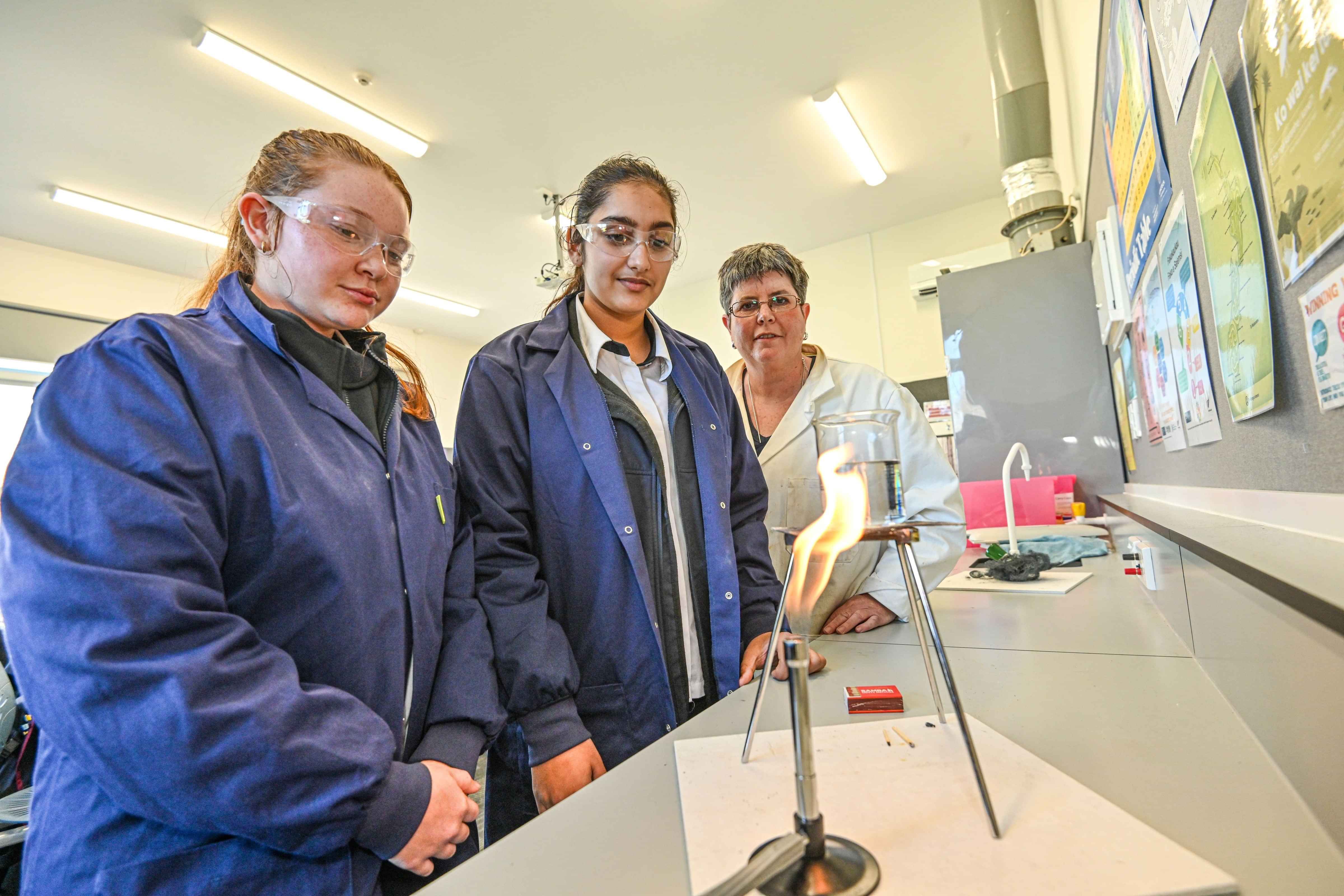
SCIENCE / PŪTAIAO
Pūtaiao (Science) is a way of investigating, understanding and explaining our natural world, physical world and the wider universe. It involves generating and testing ideas by gathering evidence. This includes making observations, carrying out investigations, modelling, communicating and debating with others in order to develop scientific knowledge, understanding and explanations.
Career choices – why choose Pūtaiao at Level 1 or Sciences at Level 2 or 3?
Sciences are recommended subjects for many careers you may not expect, e.g. armed forces, police, and many more! Physics, Chemistry and Biology are APPROVED SUBJECTS for all University Entrance qualifications.
There is also always a demand for Scientists in New Zealand, Australia, and across the world. Here are some possible careers - ecologist, environmental scientist, environmental engineer, pharmacist, medical laboratory scientist, exploration geologist, emergency and critical care vet, biochemist, botanist, exercise physiologist, food safety chemist, doctor, nurse, radiographer, geneticist, astronomer, animal scientist, microbiologist, physiotherapist, dentist, midwife. Salaries are usually in the higher range for Scientific and Technical careers.
Seven of "the 20 top jobs New Zealanders should be studying for" are science jobs.
Science is about understanding the world around us. Students learn to carry out investigations, research ideas and use their knowledge to solve problems.
Biology is about living things and how they interact with each other and the environment.
Chemistry involves the study of matter and the changes it undergoes and understanding the composition and properties of atoms and molecules.
Physics provides explanations for a wide range of ideas, including light, sound, heat, electricity, waves, forces and motion, united by the concept of energy that cannot be created or destroyed.
Level 1
Science for Health, Chemical, Engineering and Biological
This Level 1 Science course covers all the strands of Science. The course includes Achievement Standards that will cover Physics, Chemistry and Biology. Students will be assessed from internal and external standards. Please consider this course if you enjoy Science, even if you are not sure you want to pursue a Scientific career. Level 1 Science opens doors to many career choices that are not obviously scientific.
The course involves practical and theoretical work and the skills of collaborative as well as independent learning are developed. Use of practical investigations involving designing experiments and testing ideas assist the student, along with the existence of the Tuakana-teina tutorials where students can get individual help from Science specialists.
Entry Guidelines: No entry requirements
Leads to: Higher level study in Chemistry, Biology, Physics or Sciences at Levels 2 and 3
Teacher in Charge: Whāea Candyce Keelan
Course Code: 1SCI
Level 2 Academic Pathway
Koiora (Biology): Life Processes and Genetic Variation
Biology is the study of living things, how they interact with other living things and the environment. Biology develops an understanding of how life is incredibly varied yet based on common processes. Studying Biology can lead to a huge variety of careers, from Health and Sports Sciences to Environmental and Marine Sciences through to Vet Nursing, Massage Therapy and Nutrition. This course provides a pathway to course endorsements through both internally and externally assessed Achievement Standards that explore how plants and animals are adapted to their environment, carry out their life processes, and change at a genetic level over time. We also look at ecological distribution patterns at the rocky shore and the reasons for these patterns. Finally, we develop experimental design skills to investigate osmotic processes in model cells which leads to osmoregulation in Level 3 Biology.
Entry Guidelines: Achievement in at least one Level 1 Science external, preferably genetic variation, or at the discretion of the HOD
Leads to: Level 3 Biology
Teacher in Charge: Miss A Sherwood
Course Code: 1BIO
Ahupūngao (Physics): The Forces of the Universe
This Level 2 Physics course looks at the interactions between matter and energy and develops an understanding of the laws that govern force and motion, matter and energy, and space and time.
This course includes a mixture of internally and externally assessed Achievement Standards that will explore the understanding of:
Mechanics
Waves
Atomic and nuclear physics
Electricity and electromagnetism
Future pathways:
Essential for students wishing to pursue a career in engineering
Required by some architecture courses
Highly recommended for entry into health sciences for a career in medicine/dentistry and physiotherapy
Entry Guidelines: Achievement in at least one Level 1 Science external standard and Mathematics external or at the discretion of the HOD
Leads to: Level 3 Physics
Teacher in Charge: Ms Y Zhao
Course Code: 2PHY
Mātauranga matū (Chemistry): Structure of the Universe
Chemistry is the study of matter and the changes it undergoes. Chemistry develops the understanding of the composition and properties of matter, the changes it undergoes, and the energy involved to make sense of the world around them.
This course includes a mixture of internally and externally assessed Achievement Standards that will explore the understanding of:
Bonding, structure, properties and energy changes
Properties of selected organic compounds
Chemical reactivity
Equilibrium principals
The nature and properties of acids and bases
Oxidation and reduction reactions
Practical investigations into substances present in a consumer product using quantitative analysis
Entry Guidelines: Achievement in at least one Level 1 Science external standard or at the discretion of the HOD
Leads to: Level 3 Chemistry
Teacher in Charge: Mrs M Goodson
Course Code: 2CHEM
Level 2 Vocational Pathway
Pūtaiao (Science): Citizen Science
Students will develop the ability to evaluate scientific issues that affect them now and in the future, and to respond to them.
They will build their knowledge of science content and science processes, and practice the types of thinking, questioning, and actions needed to become informed citizens.
The focus will be around developing the science capabilities across the four learning areas within Science (Biology, Chemistry, Physics, Earth and Space Science). The science capabilities are: gather and interpret data, use evidence, critique evidence, interpret representations, and engage with science.
Entry Guidelines: Achievement in one Level 1 Science course or at the discretion of the HOD
Leads to: Further Citizen Science
Teacher in Charge: Mr P Chamberlain
Course Code:
Mātauranga Māori and Science
Are you curious about the natural world and how traditional Māori knowledge connects with modern science? Then this is the course for you, "Mātauranga Māori and Science," and discover the profound relationships between Te Ao Māori (the Māori worldview) and scientific principles. This course offers a unique opportunity to explore the natural environment through the lens of Mātauranga Māori, while also understanding the scientific concepts that underpin it.
Explore the practice of rongoā (traditional Māori medicine) and understand the science behind plant-based healing. Learn about plant propagation techniques that have been passed down through generations and see how they align with modern horticultural practices. Dive into whenua (land) management, where you'll discover the principles of kaitiakitanga (guardianship) and sustainable land use, integrating traditional knowledge with contemporary conservation science.
Through hands-on activities, field trips, and engaging discussions, you'll gain a holistic understanding of how Mātauranga Māori and science can work together to address today's environmental challenges. Join us in this journey of learning, where ancient wisdom meets modern inquiry, and become a guardian of the Earth with a deep respect for both scientific knowledge and indigenous perspectives.
Entry Guidelines: Achievement in one Level 1 Science course or at the discretion of the HOD
Leads to: Diploma courses in areas such as Veterinary Nursing and Primary Industries such as Horticulture and Viticulture
Teacher in Charge: Mr P Chamberlain
Course Code: 2MSCI
Investigations Science at level 2
This course is designed to cover selected aspects of Biology, Chemistry, Physics and Earth Space Sciences.
It is assessed through internal assessments (these are assessments done through investigations and research in class and marked by the teacher).
With careers advice, it may be possible to take this course combined with individual Science subjects ( Biology, Chemistry or Physics)
Course Code: 2SCI
Level 3 Academic Pathway
Koiora (Biology): Ecology and the Formation of New Species
Biology is the study of living things, how they interact with other living things and the environment and how they change over time. Studying Biology can lead to a huge variety of careers, from Health and Sports Sciences to Environmental and Marine Sciences through to Vet Nursing, Massage Therapy and Nutrition. Biology in Level 3 explores the adaptive advantage of animal behaviours and plant responses to maximise reproductive success: from mating behaviours and why animals migrate to why plants grow the way they do. We also look into why there is so much diversity in living things and how new species form. We use advanced experimental design to investigate distribution patterns or the effect of environmental factors on the life processes of organisms; past studies have looked at nest distribution patterns of Gannets at the Plateau colony at Cape Kidnappers and Crab distribution patterns at Ahuriri Estuary. We also research a socio-scientific issue, learning how to form an opinion based on evidence. This course provides a pathway for course endorsements, University Entrance and both Numeracy and Literacy credits.
Entry Guidelines: Achievement in at least one Level 2 Biology external, preferably genetic variation, or at the discretion of the HOD
Teacher in Charge: Miss A Sherwood
Course Code: 3BIO
Mātauranga matū (Chemistry): Building Blocks of Our World
Chemistry is about understanding the properties of different substances and how these substances can change. Chemistry allows us to predict how substances may alter when the surrounding conditions change, or how they may react to form new substances, and to explain why this happens.
Chemistry goes on continuously, all around us: in plants that make food using the air and in animals that digest this food, in the burning of fuel and rusting of cars, in the formation of snow and ice, in the industries that supply us with all our household products, and in the many biological processes that maintain the living world.
Students will relate properties of matter to structure and bonding, develop an understanding of and use the fundamental concepts of Chemistry including equilibrium and thermochemical principles to interpret observations.
They will investigate the chemical and physical properties of a range of groups of substances, including acids and bases, oxidants and reductants, and selected organic and inorganic compounds.
Entry Guidelines: Achievement in two Level 2 Chemistry external standards or at the discretion of the HOD
Leads to: Health sciences, nursing, veterinary science, biochemistry, marine science, geology, food science, engineering and pharmacy
Teacher in Charge: Mr P Chamberlain
Course Code: 3CHE
Ahupūngao (Physics)
This Level 3 course builds on the areas of study at Level 2. Most of the available credits are from the external standards.
The main areas of study are:
Wave systems
Electrical systems
Mechanical systems
An understanding of Modern Physics
Entry Guidelines: Study of Level 2 Physics
Leads to: Entry requirement for engineering and some architecture courses, recommended for first year health science and biomedical science
Teacher in Charge: Mrs Y Zhao
Course Code: 3PHY
Level 3 Vocational Pathway
Pūtaiao (Science): Further Citizen Science
For students who wish to continue the study of Science and may be considering diploma courses in areas such as Veterinary Nursing and Primary Industries such as Horticulture and Viticulture.
This course will consist of internal standards from Biology and Earth & Space Science. The credits from this course can contribute to the 60 Level 3 credits required by universities. However, it will not count as an approved subject as the course consists of standards from two different subject areas.
Entry Guidelines: Followed the Level 2 Citizen Science Course or other Science Courses at Level 2
Leads to: Diploma courses in areas such as Veterinary Nursing and Primary Industries such as Horticulture and Viticulture
Teacher in Charge: Mr P Chamberlain
Investigations Science
This course is designed to cover selected aspects of Biology, Chemistry, Physics and Earth Space Sciences.
It is assessed through internal assessments (these are assessments done through investigations and research in class and marked by the teacher).
Course Code: 3SCI
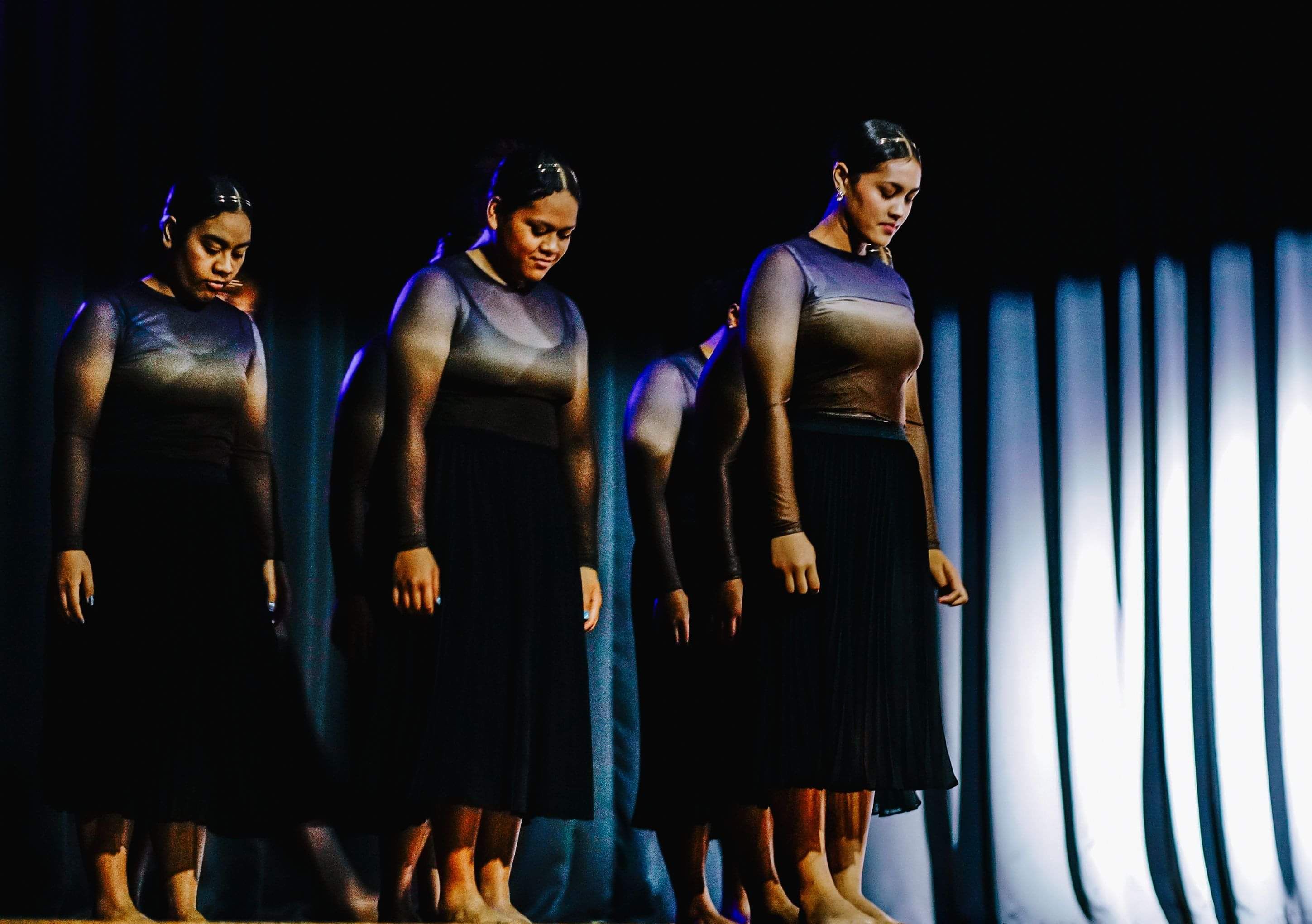
PERFORMING ARTS
The Senior Performing Arts curriculum at Hastings Girls' High School goes beyond just skill acquisition; it’s a transformative journey that shapes well-rounded individuals. By participating in these programmes, students develop the confidence to stand in the spotlight, the humility to collaborate as part of a team, and the resilience to overcome challenges. These qualities are not only beneficial within the performing arts arena but also serve as valuable life skills.
Through Te Ao Haka, Dance, Drama, and Music, students discover new dimensions of themselves and the world around them. They learn to express ideas, emotions, and narratives in ways that transcend conventional communication methods. These programmes foster creativity, cultural understanding, and personal growth, preparing students to thrive in an ever-evolving global society.
Students will join us on a journey of self-discovery and artistic exploration. Students will have the opportunity to immerse themselves in the world of Te Ao Haka, Dance, Drama, and Music, and experience the transformative power of the performing arts. At Hastings Girls' High School, we believe in nurturing the desire to create, communicate, and connect.
The Performing Arts are a powerful form of personal, social and cultural expression. The Arts pass on and renew our heritage and traditions, and help to shape our sense of identity.
Through studying the Performing Arts, students are given skills and ways to create unique ideas and images that reflect their view of the world. Students are challenged and taught to question perception, and understand how the arts enrich our emotional and spiritual lives.
Essential Skills: Creativity, collaboration, co-operation, innovation, critical thinking, adaptability, performance preparation, presentation skills, personal achievement, confidence, perseverance, resilience.
Level 1 Academic Pathway
Dance
This course is for dance students who have experience in performing at a high level in a specialist dance discipline and passion for choreography. Through this course, students will have the opportunity to choreograph solo and ensemble sequences, perform as a soloist and part of an ensemble, and study the elements of dance specific to a genre or style of their choice.
It is important to note that NCEA Dance requires both written and performance components.
Entry Guidelines: Entry to this course is by audition and interview with the HOD Performing Arts.
Teacher in Charge: Mrs M Ferguson
Course Code: 1DAN
Te Ao Haka - Māori Performing Arts
Our Senior Māori Performing Arts course is an exciting new opportunity for our wāhine to engage in all aspects of Te Ao Haka and performance from a Māori perspective. It is open to all senior students.
Students will explore using movement, style, language, and content specific to Te Ao Haka. Our wāhine will refine their understanding and use of the unique Tikanga and Reo features needed to express a deeper understanding of what Te Ao Haka is. Tauira will observe and analyse existing Te Ao Haka performances as well as a variety of other Toi Whakaari performances.
This course has internal and external Achievement Standard Assessments at NCEA Level 1.
Entry Guidelines: Students enrolling in Senior Māori Performing Arts must actively participate and perform in the school rōpū Kapa Haka
Teacher in Charge: Whaea Oriana Kershaw
Course Code: 1HAKA
Drama
Our Level 1 Drama and Production Skills course is tailored to the interests and needs of our girls. Whether you want to specialise in a particular area of drama or production, this Drama course provides the skill and knowledge development to allow you to be the best drama practitioner you can be. This course gives support to achieve NCEA Level 1 and to become immersed in the world of Theatre.
The areas and skills available to study are:
Performing solo or group drama performances
Developing rehearsal and performance skills and techniques
Writing scripts, devising your own drama pieces and learning to direct others
Learning about different types of theatre forms
Exploring the different skills and roles that exist in performance, theatre and film
Gaining knowledge and experience of stage makeup
Gaining knowledge and experience of stage lighting and sound and how to use them in performance
Gaining knowledge and experience of using and creating props and sets
Students will be exposed to professional performances and have the opportunity to interact with professionals working in their fields.
Students will also learn useful life skills like collaboration, creativity, problem solving, communication and expression.
Entry Guidelines: Interest in Drama and performing
Leads to: Level 2 Drama, Scholarship Drama, personal enjoyment, numerous careers, university study
Teacher in Charge: Mrs M Ferguson
Course Code: 1DRA
Music
This music course is highly practical. You will be singing or playing every lesson either in group work or as a soloist. The focus is on learning how to pull music apart and how to put it back together in your own way. You will learn to be a confident and skilled musician who has a type of music in which you excel, but also has the courage and knowledge to give all types of music a go.
Students will learn about the mechanics of different musical styles and genres as well as making connections between music that they hear in films, on the stage, in games, on streaming platforms and apply these to their work.
In this class, students will explore the exciting realms of rhythm, melody, and harmony, gaining a deep understanding of musical notation and terminology. Through engaging practical exercises, they'll develop their instrumental or vocal skills, cultivating the ability to perform with confidence.
By the end of the NCEA Level 1 Music class, students will have a strong grasp of musical theory and concepts, and an enhanced ability to interpret and create music.
Entry Guidelines: Junior Music or Te Ao Haka, or by interview for specific students. Students must keep in mind Level 2 Music is required for entrance to Level 3 Music. All students will be required to undertake private tuition in the primary instrument (or voice) of their choice. This will be either through the HGHS Music tuition programme (free of charge) or with an external private tutor of your choice.
Leads to: Levels 2, 3 and Scholarship Music
Teacher in Charge: Mrs M Ferguson
Course Code: 1MUS
Level 2 Academic Pathway
Dance
This course is for dance students who have experience in performing at a high level in a specialist dance discipline and passion for choreography. Through this course, students will have the opportunity to choreograph solo and ensemble sequences, perform as a soloist and part of an ensemble, and study the elements of dance specific to a genre or style of their choice.
It is important to note that NCEA Dance requires both written and performance components.
Entry Guidelines: Entry to this course is by audition and interview with the HOD Performing Arts.
Teacher in Charge: Mrs M Ferguson
Course Code: 2DAN
Te Ao Haka - Māori Performing Arts
Our Senior Māori Performing Arts course is an exciting new opportunity for our wāhine to engage in all aspects of Te Ao Haka and performance from a Māori perspective. It is open to all senior students.
Students will explore using movement, style, language, and content specific to Te Ao Haka. Our wāhine will refine their understanding and use of the unique Tikanga and Reo features needed to express a deeper understanding of what Te Ao Haka is. Tauira will observe and analyse existing Te Ao Haka performances as well as a variety of other Toi Whakaari performances.
This course has internal and external Achievement Standard Assessments at NCEA Level 2.
Entry Guidelines: Students enrolling in Senior Māori Performing Arts must actively participate and perform in the school rōpū Kapa Haka
Teacher in Charge: Whaea Oriana Kershaw
Course Code: 2HAKA
Music
Level 2 Music is a practical course where you can build your performance skills as students work towards becoming an accomplished musician. This comprehensive curriculum offers an enriching journey that blends foundational concepts with advanced techniques, catering to students with varying levels of musical knowledge and skill. At Level 2, students delve into the fundamentals of music theory, exploring notation, scales, chords, and rhythm. They engage in hands-on activities, refining their instrumental or vocal skills through practical exercises.
Entry Guidelines: Level 1 Music. All students will be required to undertake private tuition in the primary instrument (or voice) of their choice. This will be either through the HGHS Music tuition programme (free of charge) or with an external private tutor of your choice.
Leads to: Level 3 and Scholarship Music
Teacher in Charge: Mrs M Ferguson
Course Code: 2MUS
Level 3 Academic Pathway
Dance
This course is for dance students who have experience in performing at a high level in a specialist dance discipline and passion for choreography. Through this course, students will have the opportunity to choreograph solo and ensemble sequences, perform as a soloist and part of an ensemble, and study the elements of dance specific to a genre or style of their choice.
It is important to note that NCEA Dance requires both written and performance components.
Entry Guidelines: Entry to this course is by audition and interview with the HOD Performing Arts.
Teacher in Charge: Mrs M Ferguson
Course Code: 3DAN
Te Ao Haka - Māori Performing Arts
Our Senior Māori Performing Arts course is an exciting new opportunity for our wāhine to engage in all aspects of Te Ao Haka and performance from a Māori perspective. It is open to all senior students.
Students will explore using movement, style, language, and content specific to Te Ao Haka. Our wāhine will refine their understanding and use of the unique Tikanga and Reo features needed to express a deeper understanding of what Te Ao Haka is. Tauira will observe and analyse existing Te Ao Haka performances as well as a variety of other Toi Whakaari performances.
Entry Guidelines: Students enrolling in Senior Māori Performing Arts must actively participate and perform in the school rōpū Kapa Haka
Teacher in Charge: Whaea Oriana Kershaw
Course Code: 3HAKA
Music
Level 3 Music is a practical course where you can build your performance skills as students work towards becoming an accomplished musician. This comprehensive curriculum offers an enriching journey that blends foundational concepts with advanced techniques, catering to students with varying levels of musical knowledge and skill. At Level 3, the complexity of musical theory deepens, encompassing topics such as harmony, analysis, and composition. Students have the opportunity to craft their own musical compositions, fostering creativity and originality.
Entry Guidelines: Level 2 Music is required to enter Level 3 Music. All students will be required to undertake private tuition in the primary instrument (or voice) of their choice. This will be either through the HGHS Music tuition programme (free of charge) or with an external private tutor of your choice.
Leads to: Level 3 and Scholarship Music
Teacher in Charge: Mrs M Ferguson
Course Code: 3MUS
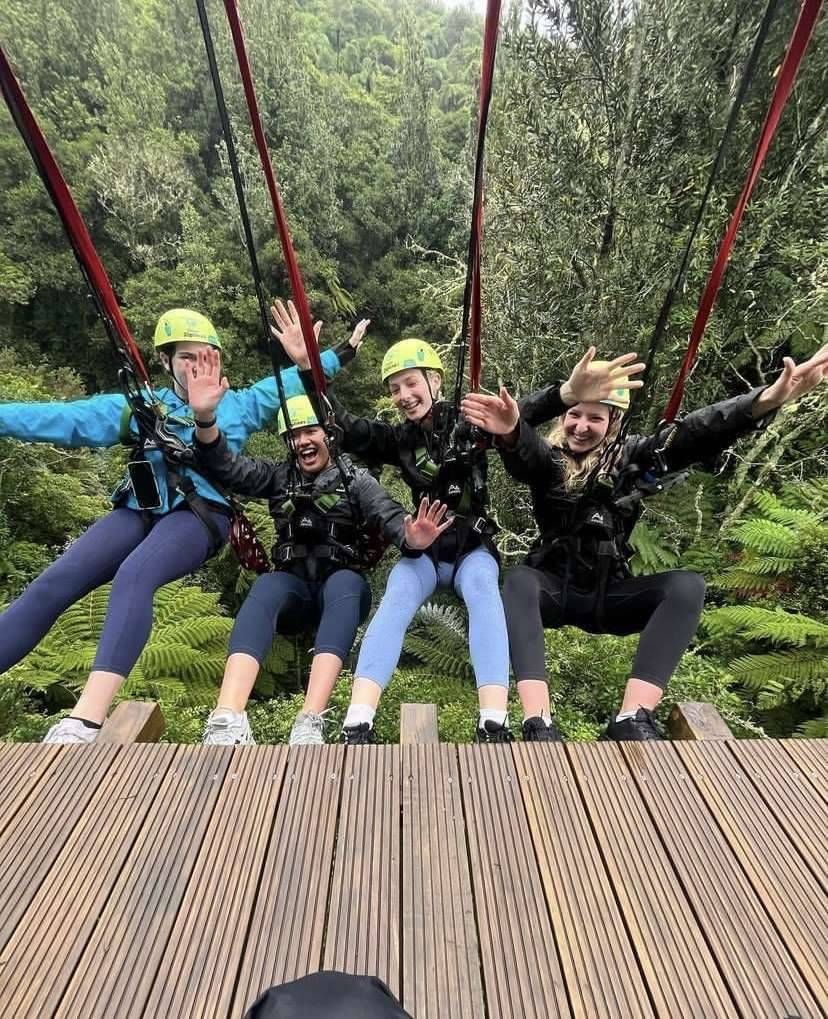
PHYSICAL EDUCATION AND HEALTH
In Physical Education and Health, the focus is on the wellbeing of the students themselves, of other people, and of society through learning in health-related and movement contexts. Students will also develop the leadership and interpersonal skills to plan and manage activities in the outdoors. Four underlying and interdependent concepts are at the heart of this learning area: hauora, attitudes and values, the socio-ecological perspective and health promotion. This learning area is divided into specific courses catering to the diverse pathways within the field. There may be some overlap within these courses.
Physical Education - This subject gives students the opportunity to develop leadership skills, knowledge of the human body and exercise science. It also gives students an understanding of the influences of one’s participation, health promotion in society and lifelong wellbeing. There is an Education Outside the Classroom element to the subject at each year level. Camps allow us to provide authentic learning environments for the students to achieve at a high level.
This subject endeavours to give students the skills and capabilities required in pathways such as, but not limited to: medicine, nursing, PE teaching, physiotherapy, occupational therapy, sports development leaders, national sporting bodies, fitness industry, environmental work, event management, tourism and leisure industries.
Health - This subject helps students to develop their understanding of the factors and determinants that influence the health of individuals, groups and society. This subject endeavours to give students the skills and capabilities required in pathways such as but not limited to: social work, nursing, physiotherapy, occupational therapy, medicine, midwifery, teaching, health promotion agencies.
Level 1
Health
Students learn that well-being is a combination of the physical, mental and emotional, social and spiritual aspects of people’s lives. They will learn to think critically and to make meaning of the world around them by exploring health-related contexts such as managing change, interpersonal skills, gender and sexuality and adolescent health issues. They will learn how to bring about sustainable health-enhancing change for individuals, communities, and society.
Cost and Materials: $5
Entry Guidelines: At the discretion of HOD
Leads to: Health Promotion, Social Work, Health Sciences and Health Support Services, Policy Advisor, Community Health Worker, Wellbeing Advisor, Public Health Consultant
Teacher in Charge: Mrs K Hokianga
Course Code: 1HLH
Physical Education
This course aims to provide students with opportunities to learn about the structure and function of their bodies in relation to different sporting activities. They will also learn about the factors affecting skill acquisition. Students will demonstrate and show understanding of responsible behaviour for safety in class, and during an outdoor education adventure. Students will use leadership to assist others to take action for physical activity, and learn why people take part in particular activities.
Cost and Materials: Approximately $100 for Outdoor Adventure - TBC
Entry Guidelines: Consistent positive contribution in junior PE or at the discretion of HOD
Leads to: Level 2 in this learning area
Teacher in Charge: Mrs K Geary
Course Code: 1PE
Level 2
Health
This course aims to provide students with skills to make health enhancing decisions with regard to their own wellbeing and that of others. They will learn how to manage change and to promote different health issues within the wider school community. They will also explore adolescent health issues and the evolving societal issues surrounding gender and sexuality.
Cost and Materials: $10 activities
Entry Guidelines: At the discretion of HOD
Leads to: Level 3 in this learning area, Health Promotion, Social Work, Health Sciences, Health Support Services, Policy Advisor, Community Health Worker, Wellbeing Advisor, Public Health Consultant
Teacher in Charge: Mrs K Geary
Course Code: 2HLH
PE - Exercise Prescription and Performance
This course aims to provide students with the skills to lead and participate effectively in a variety of physical activities in school and during an outdoor adventure. It also aims to provide students with the skills to participate in a variety of activities in school and in the outdoors, to plan and examine a number of different risk management strategies. Students will also demonstrate, examine, and evaluate how biophysical principles are used for performance and skill improvement. The course will involve regular physical activities aiming to improve skills within a chosen physical activity.
This is a full internal assessment course.
Cost and Materials: Approximate cost $250 for outdoor adventure - Central North Island
Entry Guidelines: Satisfactory completion of Level 1 in this learning area or at the discretion of HOD
Leads to: Level 3 in this learning area, Police Course
Teacher in Charge: Ms K Geary
Course Code: 2PE
Physical Education for Outdoor Pursuits
This course is a physically and mentally demanding programme developing practical skills in various outdoor pursuits while studying and demonstrating effective leadership skills, safety management in high-risk environments, strategies for well-being and the effects of participation in these pursuits on the self, others, and society.
PLEASE NOTE - this is a physically and academically demanding course where 100% participation, enthusiasm, and personal organisation are essential. While not easy, it is guaranteed to be an adventure!
This is a full internal assessment course, with 2x expeditions including trips within the North and South Island.
Cost and Materials: Approximate cost $500-$800 for camps/expeditions, though funding/payment options will be actively explored for each student and the course as a whole wherever possible
Entry Guidelines: Satisfactory completion of Level 2 in this learning area or at the discretion of HOD
Leads to: Defence Force, Teaching, Tourism, Event Management
Teacher in Charge: Mr C Pera
Course Code: 2OUT
Level 3 Academic Pathway
Health
This course aims to provide students with the skills to research and analyse different health issues and practices within New Zealand. They will also explore topical health issues from around the world. They will have the opportunity to critically examine a chosen ethical issue. This will provide students with the skills to make informed health enhancing decisions at a personal, interpersonal and societal level. Māori/Pacific models of health and frameworks will be explored. Students will apply understanding of Māori/Pacific public health values and practices to promote healthy communities.
Cost and Materials: $40 activities
Entry Guidelines: Satisfactory completion of Level 2 in this learning area or at the discretion of HOD
Leads to: Health Promotion, Social Work, Health Sciences, Health Support Services, Policy Advisor, Community Health Worker, Wellbeing Advisor, Public Health Consultant
Teacher in Charge: Mrs K Hokianga
Course Code: 3HLH
PE - Exercise Prescription and Performance
This course aims to provide students with the skills to lead and participate safely in a variety of activities in school and during an outdoor adventure. They will critically examine a number of different contemporary leadership styles. Students will be involved in regular physical activities aiming to apply strategies to improve skills within a chosen sport or activity. Students will evaluate how biophysical principles are used to improve practical performance through biomechanical skill analysis. Students will evaluate the effectiveness of a performance improvement programme.
Cost and Materials: Approximately $250, trip to Rotorua, white water rafting, and surfing
Entry Guidelines: Satisfactory completion of Level 2 in this learning area or at the discretion of HOD
Leads to: Teaching, Nursing, Physiotherapy, Health Science, Medicine, Occupational Therapy, Event Management, Sport and Exercise Science, Defence Force, Personal Training
Teacher in Charge: Ms K Geary
Course Code: 3PE
Level 3 Vocational Pathway
Physical Education for Outdoor Pursuits
This course aims to provide students with the skills to lead and participate effectively in a variety of physical activities in school and during an outdoor adventure. It also aims to provide students with the skills to participate in a variety of activities in school and in the outdoors, to plan and examine a number of different risk management strategies. Students will also demonstrate, examine, and evaluate how biophysical principles are used for performance and skill improvement. The course will involve regular physical activities aiming to improve skills within a chosen physical activity.
This is a full internal assessment course.
Cost and Materials: Approximate cost $250 for outdoor adventure - Central North Island.
Entry Guidelines: Satisfactory completion of Level 1 in this learning area or at the discretion of HOD
Leads to: Level 3 in this learning area, Police Course
Teacher in Charge: Mrs K Geary
Course Code: 3OUT
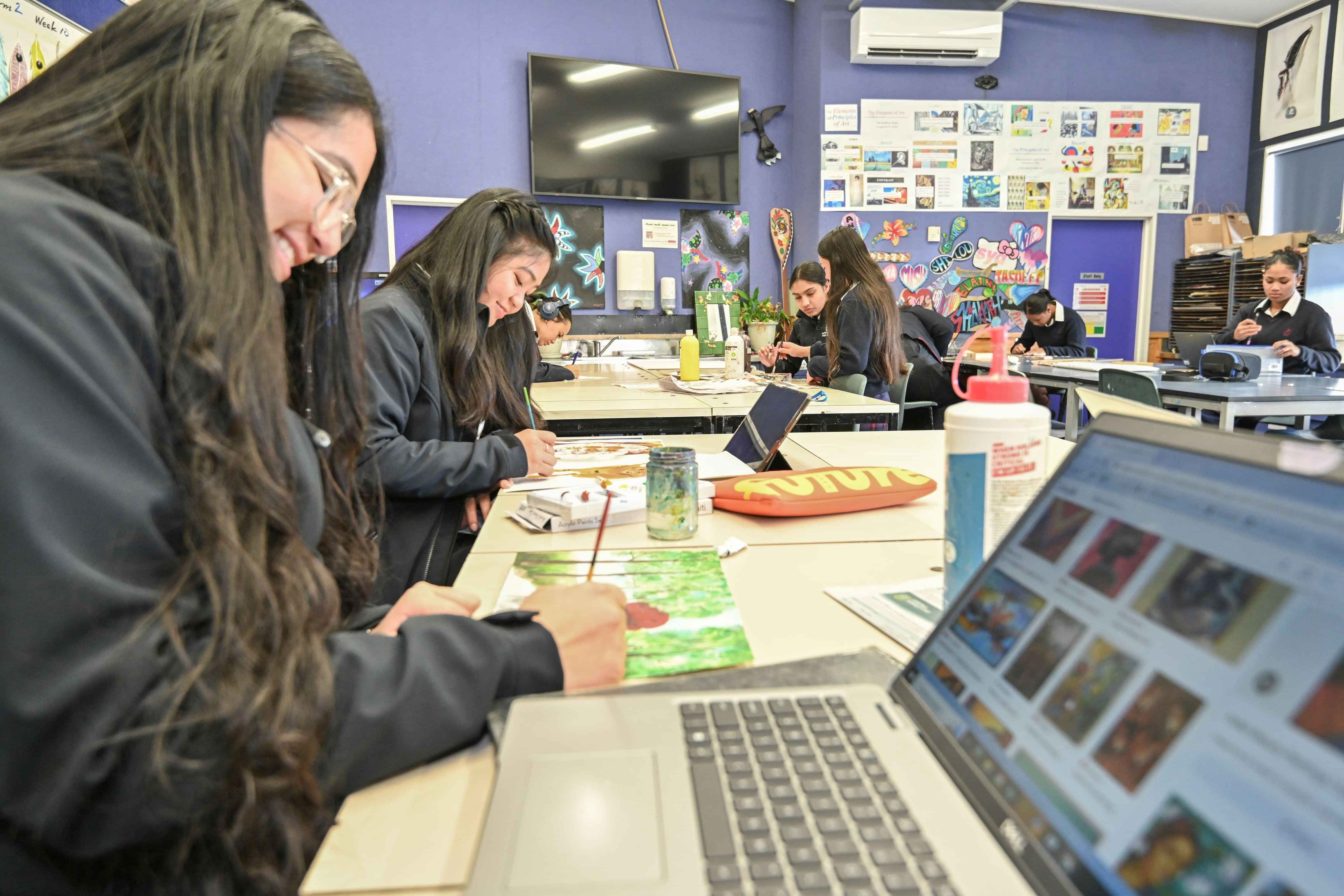
VISUAL ARTS
Visual Arts is powerful forms of expression that recognise, value, and contribute to the unique bicultural and multicultural character of Aotearoa New Zealand, enriching the lives of all New Zealanders. Through movement, sound and image, Visual Arts transform people’s creative ideas into expressive works that communicate layered meanings.
Level 1
Visual Arts
Level 1 Visual Arts in 2024 is a brand new course of integrated studies that will explore all of the disciplines from photography and design to painting, printmaking and sculpture. All activities will be grounded in Mātaurangi Māori and include the Pasifika values.
Visual Art can be great preparation for any career that requires fine motor skills, presentation skills, an eye for aesthetics and creative thinking: architect, interior designer, theatre stage designer, photographer, graphic designer, advertisement producer, logo/branding designer, sign writer, magazine/book designer, packaging designer, fashion/accessory designer, fabric/textile/pattern designer, jeweller, weaver, carver, glass artist, potter, fine artist, tattoo artist, art historian, art critic, teacher, art therapist, illustrator, animator, movie maker, website/video creator, curator, personal style/make-up artist and more.
Only one Visual Arts subject is available for Level 1 students, choose from:
Cost and Materials: $60. Students may need to purchase some specialist items
Entry Guidelines: Completion of an art elective or Visual Art Hub preferred, subject to HOD approval.
Leads to: Level 2 Visual Art subjects: Painting, Printmaking, Sculpture.
Teachers in Charge: Mrs H Jones, Ms J Dickerson
Course Code: 1PAI Painting, Printmaking and Sculpture or 1PHO Photography & Design
Level 2 Academic Pathway
At Level 2 students may take multiple Visual Arts subjects (Design, Painting, Photography, Printmaking, Sculpture)
Design
This course is designed to give students the chance to explore and experience the Visual Art discipline of Design at a deeper level of understanding, developing students’ strengths in the process.
Produce a body of work within Design to show understanding of art making methods and ideas
Develop a comprehensive knowledge of digital creative tools – Illustrator/Photoshop/InDesign
Develop an understanding of the many aspects of Design from logo design, illustration of children’s book, to fashion design
Design can be great preparation for any career that requires fine motor skills, presentation skills, an eye for aesthetics and creative thinking: architect, interior designer, theatre stage designer, photographer, graphic designer, advertisement producer, logo/branding designer, sign writer, magazine/book designer, packaging designer, fashion/accessory designer, fabric/textile/pattern designer, jeweller, weaver, carver, glass artist, potter, fine artist, tattoo artist, art historian, art critic, teacher, art therapist, illustrator, animator, movie maker, website/ video creator, curator, personal style/make-up artist and more.
Cost and Materials: $60. Students may need to purchase some specialist items
Entry Guidelines: No entry requirements
Leads to: Level 3 Visual Art subjects: Design, Painting, Photography, Printmaking, Sculpture
Teacher in Charge: Ms J Dickerson
Course Code: 2DESI
Painting
This course is designed to give students the chance to explore and experience the Visual Art discipline of Painting at a deeper level of understanding, developing students’ strengths in the process.
Generate and develop ideas using drawing processes and procedures in painting
Produce a body of work within painting to show understanding of art making methods and ideas
Painting can be great preparation for any career that requires fine motor skills, presentation skills, an eye for aesthetics and creative thinking: architect, interior designer, theatre stage designer, photographer, graphic designer, advertisement producer, logo/branding designer, sign writer, magazine/book designer, packaging designer, fashion/accessory designer, fabric/textile/pattern designer, jeweller, weaver, carver, glass artist, potter, fine artist, tattoo artist, art historian, art critic, teacher, art therapist, illustrator, animator, movie maker, website/video creator, curator, personal style/make-up artist and more.
Cost and Materials: $60. Students may need to purchase some specialist items
Entry Guidelines: Successful completion of Level 1 Visual Arts portfolio, subject to HOD approval
Leads to: Level 3 Visual Art subjects: Design, Painting, Photography, Printmaking, Sculpture
Teacher in Charge: Mr C Lee
Course Code: 2PAI
Photography
This course is designed to give students the chance to explore and experience the Visual Art discipline of Photography at a deeper level of understanding, developing students’ strengths in the process.
Demonstrate digital photography
Generate and develop ideas using drawing processes and procedures in photography and design
Produce a body of work within photography to show understanding of art making methods and ideas
Developing a comprehensive knowledge of digital creative tools
Photography can be great preparation for any career that requires fine motor skills, presentation skills, an eye for aesthetics and creative thinking: architect, interior designer, theatre stage designer, photographer, graphic designer, advertisement producer, logo/branding designer, sign writer, magazine/book designer, packaging designer, fashion/accessory designer, fabric/textile/pattern designer, jeweller, weaver, carver, glass artist, potter, fine artist, tattoo artist, art historian, art critic, teacher, art therapist, illustrator, animator, movie maker, website/video creator, curator, personal style/make-up artist and more.
Cost and Materials: $60. Students may need to purchase some specialist items
Entry Guidelines: No entry requirements
Leads to: Level 3 Visual Art subjects: Design, Painting, Photography, Printmaking, Sculpture
Teacher in Charge: Ms J Dickerson
Course Code: 2PHO
Printmaking
This course is designed to give students the chance to explore and experience the Visual Art discipline of Printmaking at a deeper level of understanding, developing students’ strengths in the process.
Generate and develop ideas using drawing processes and procedures in printmaking – chine colle/collagraphy/etching/ screen printing/transfer/laser cut/mono print/woodcut
Produce a body of work within printmaking to show understanding of art making methods and ideas
Printmaking can be great preparation for any career that requires fine motor skills, presentation skills, an eye for aesthetics and creative thinking: architect, interior designer, theatre stage designer, photographer, graphic designer, advertisement producer, logo/branding designer, sign writer, magazine/book designer, packaging designer, fashion/accessory designer, fabric/textile/pattern designer, jeweller, weaver, carver, glass artist, potter, fine artist, tattoo artist, art historian, art critic, teacher, art therapist, illustrator, animator, movie maker, website/video creator, curator, personal style/make-up artist and more.
Cost and Materials: $60. Students may need to purchase some specialist items
Entry Guidelines: Successful completion of Level 1 Visual Arts portfolio, subject to HOD approval
Leads to: Level 3 Visual Art subjects: Design, Painting, Photography, Printmaking, Sculpture
Teacher in Charge: Mr C Lee
Course Code: 2PRIN
Level 2 Vocational Pathway
Visual Arts Lite
Visual Arts Lite delivers selected programmes to students who have the desire to continue developing their art skills or expressing themselves through their artistic talent, but are not able to be fully engaged in the mainstream art subjects due to commitments in other areas of school (trade, gateway or heavy workload in other subjects).
One of the following programmes would be offered to individual students based on their strengths in art:
Portfolio (2 boards of art display): Produce a body of work within Visual Arts to show understanding of art making methods and ideas
Workbook (Visual diary documentation of art making): Generate and develop ideas using drawing processes and procedures in Visual Arts
Project (Art work for exhibition, mural, film, costume, stage design for school events - Fiafia and/or Production): Produce a resolved work with control of skills
Visual Arts Lite can be great preparation for any career that requires fine motor skills, presentation skills, an eye for aesthetics, or creative thinking, e.g., Beautician, Hairstylist, Personal Stylist, Picture Framer, YouTube Video Creator, Sign Writer, Embroiderer, Fashion Merchandiser, Airbrush Artist/Spray Painter, Book Illustrator, Commercial Artist, Fine Artist, Printmaker/Screen Printer, Mural Artist, Tattoo Artist, Decorator, Painter, Photographer, Prop Designer, Potter, Carver, Jeweller, Weaver, Glass Artist, Website Owner/Blogger, Graphic Novel Writer, etc.
Cost and Materials: $0. Students may need to purchase some specialist items
Entry Guidelines: There are no prerequisites for this course
Leads to: Level 3 Visual Art subjects: Design, Painting, Photography, Printmaking, and/or Visual Arts Lite
Teacher in Charge: Mr C Lee
Course Code: 2VARTS
Level 3 Academic Pathway
At Level 3, students may take multiple Visual Arts subjects (Design, Painting, Photography, Printmaking, Sculpture).
Photography
This course is designed to give students the chance to explore and experience the Visual Art discipline of Photography at a pre‑tertiary level of understanding, developing students’ strengths in the process. Emphasis is on personal development of a unique artistic vision. Self‑discipline, motivation and a commitment to artistic growth is critical.
Photography can be great preparation for any career that requires fine motor skills, presentation skills, an eye for aesthetics and creative thinking: architect, interior designer, theatre stage designer, photographer, graphic designer, advertisement producer, logo/branding designer, sign writer, magazine/book designer, packaging designer, fashion/accessory designer, fabric/textile/pattern designer, jeweller, weaver, carver, glass artist, potter, fine artist, tattoo artist, art historian, art critic, teacher, art therapist, illustrator, animator, movie maker, website/video creator, curator, personal style/make-up artist and more.
Cost and Materials: $60. Students may need to purchase some specialist items
Entry Guidelines: No entry requirements
Leads to: Tertiary courses: Architecture, Art History, Art, Therapy, Animation, Design, Fashion, Fine Arts, Film, Jewellery, Photography, Style & Beauty, and more
Teacher in Charge: Ms J Dickerson
Course Code: 3PHO
Design
This course is designed to give students the chance to explore and experience the Visual Art discipline of Design at a pre‑tertiary level of understanding, developing students’ strengths in the process. Emphasis is on personal development of a unique artistic vision. Self‑discipline, motivation and a commitment to artistic growth is critical.
Design can be great preparation for any career that requires fine motor skills, presentation skills, an eye for aesthetics and creative thinking: architect, interior designer, theatre stage designer, photographer, graphic designer, advertisement producer, logo/branding designer, sign writer, magazine/book designer, packaging designer, fashion/accessory designer, fabric/textile/pattern designer, jeweller, weaver, carver, glass artist, potter, fine artist, tattoo artist, art historian, art critic, teacher, art therapist, illustrator, animator, movie maker, website/video creator, curator, personal style/make-up artist and more.
Cost and Materials: $60. Students may need to purchase some specialist items
Entry Guidelines: No entry requirements
Leads to: Tertiary courses: Architecture, Art History, Art, Therapy, Animation, Design, Fashion, Fine Arts, Film, Jewellery, Photography, Style & Beauty, and more
Teacher in Charge: Ms J Dickerson
Course Code: 3DESI
Painting
This course is designed to give students the chance to explore and experience the Visual Art discipline of Painting at a pre‑tertiary level of understanding, developing students’ strengths in the process. Emphasis is on personal development of a unique artistic vision. Self‑discipline, motivation and a commitment to artistic growth is critical.
Painting can be great preparation for any career that requires fine motor skills, presentation skills, an eye for aesthetics and creative thinking: architect, interior designer, theatre stage designer, photographer, graphic designer, advertisement producer, logo/branding designer, sign writer, magazine/book designer, packaging designer, fashion/accessory designer, fabric/textile/pattern designer, jeweller, weaver, carver, glass artist, potter, fine artist, tattoo artist, art historian, art critic, teacher, art therapist, illustrator, animator, movie maker, website/video creator, curator, personal style/make-up artist and more.
Cost and Materials: $60. Students may need to purchase some specialist items
Entry Guidelines: Successful completion of Level 1 or 2 Visual Arts portfolio, subject to HOD approval
Leads to: Tertiary courses: Architecture, Art History, Art, Therapy, Animation, Design, Fashion, Fine Arts, Film, Jewellery, Photography, Style & Beauty, and more
Teacher in Charge: Mr C Lee
Course Code: 3PAI
Printmaking
This course is designed to give students the chance to explore and experience the Visual Art discipline of Printmaking at a pre‑tertiary level of understanding, developing students’ strengths in the process. Emphasis is on personal development of a unique artistic vision. Self‑discipline, motivation and a commitment to artistic growth is critical.
Printmaking can be great preparation for any career that requires fine motor skills, presentation skills, an eye for aesthetics and creative thinking: architect, interior designer, theatre stage designer, photographer, graphic designer, advertisement producer, logo/branding designer, sign writer, magazine/book designer, packaging designer, fashion/accessory designer, fabric/textile/pattern designer, jeweller, weaver, carver, glass artist, potter, fine artist, tattoo artist, art historian, art critic, teacher, art therapist, illustrator, animator, movie maker, website/video creator, curator, personal style/make-up artist and more.
Cost and Materials: $60. Students may need to purchase some specialist items
Entry Guidelines: Successful completion of Level 1 or 2 Visual Arts portfolio, subject to HOD approval
Leads to: Tertiary courses: Architecture, Art History, Art, Therapy, Animation, Design, Fashion, Fine Arts, Film, Jewellery, Photography, Style & Beauty, and more
Teacher in Charge: Mr C Lee
Course Code: 3PRI
Level 3 Vocational Pathway
Visual Arts Lite
Visual Arts Lite delivers selected programmes to students who have the desire to continue developing their art skills or expressing themselves through their artistic talent, but are not able to be fully engaged in the mainstream art subjects due to commitments in other areas of school (trade, gateway or heavy workload in other subjects).
One of the following programmes would be offered to individual students based on their strengths in art:
Portfolio (3 boards of art display): Produce a body of work within Visual Arts to show understanding of art making methods and ideas
Workbook (Visual diary documentation of art making): Generate and develop ideas using drawing processes and procedures in Visual Arts
Project (Art work for exhibition, mural, film, costume, stage design for school events - Fiafia and/or Production): Produce a resolved work with control of skills
Visual Arts Lite can be great preparation for any career that requires fine motor skills, presentation skills, an eye for aesthetics, or creative thinking, e.g., Beautician, Hairstylist, Personal Stylist, Picture Framer, YouTube Video Creator, Sign Writer, Embroiderer, Fashion Merchandiser, Airbrush Artist/Spray Painter, Book Illustrator, Commercial Artist, Fine Artist, Printmaker/Screen Printer, Mural Artist, Tattoo Artist, Decorator, Painter, Photographer, Prop Designer, Potter, Carver, Jeweller, Weaver, Glass Artist, Website Owner/Blogger, Graphic Novel Writer, etc.
Cost and Materials: $0. Students may need to purchase some specialist items
Entry Guidelines: There are no prerequisites for this course
At Levels 3, students may take multiple Visual Art subjects (Design, Painting, Photography, Printmaking, and/or Visual Arts Lite)
Teacher in Charge: Mr C Lee
Course Code: 3VARTS
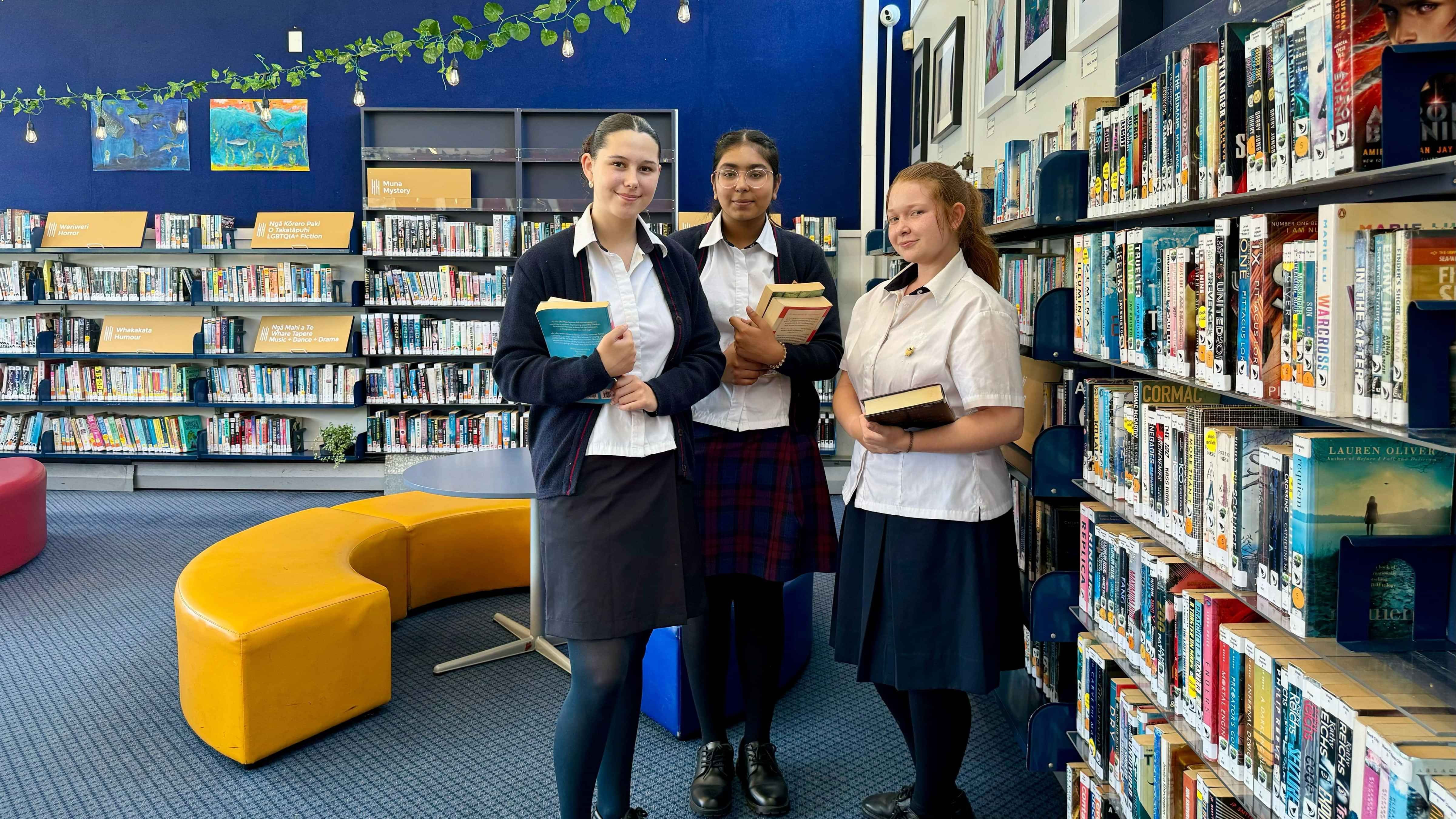
SOCIAL SCIENCE / TE AO TANGATA
The Social Science learning area is about how societies work and how people can participate as critical, active, informed, and responsible citizens. Contexts are drawn from the past, present, and future and from places within and beyond New Zealand.
History is about exploring the past, in order to understand the present, and shape the future. New Zealand history is seen within wider global contexts. Historians are skilled in research and source analysis that is fundamental for other subject areas.
Geography is the study of the relationship between people and their environments. Our environment is at a critical point in its history. Developing knowledge of humans and our impact on the natural world will allow you to prepare for the future.
Business Studies is about how individuals and groups of people organise, plan and act to create and develop goods and services to satisfy customers.
Commerce is the use and exploration of accounting, economic, and business concepts and models to make sense of society and solve problems.
Psychology gives us a fascinating insight into the behaviour of others, providing an opportunity to view the human mind from a systematic and scientific perspective. We look at addictive behaviour, the nature of evil, clinical and health practices, ethics and experimentation and consider just how we, as humans, tick.
Level 1
History
At Level 1, students gain an introduction to historical skills and thinking. We will explore the Dawn Raids that impacted our nation during the 1970s and 80s. We will also develop our understanding of social and political movements, through learning about Germany in World War II. We will investigate the rise of Hitler and the Nazis and the impact that this had on German society.
Students will also choose an aspect of New Zealand history to research. Through this process they will develop skills in research and evaluating sources, which are essential in many subject areas.
Through studying history, students gain skills that are useful throughout life. These include research techniques, understanding varied sources of information as well as how to articulate their ideas and make them clear to others. They learn how to ask and answer questions, evaluate evidence, and understand different perspectives.
Entry Requirements: No entry requirements
Leads to: Level 2 History. History is a universal qualification.
Teacher in Charge: Mr S Robinson
Course Code: 1HIS
Commerce
Commerce is the use and exploration of accounting, economic, and business concepts and models to make sense of society and solve problems. In this subject, ākonga will build knowledge, skills and values they need to navigate and participate in the world. They will learn how decisions are made and analyse how these impact sustainability.
Ākonga will learn that all individuals and groups need to make decisions, and that these are informed by a variety of cultural perspectives and lenses. Māori, Pacific and different approaches to Commerce will encompass business models from whānau and organisation contexts.
Throughout this course critical thinking skills will be developed through:
Case studies of local organisations
Applying theory and models to understand how resources are allocated and distributed
Experiencing the different functions of a business by creating and marketing a product for the school community
Connecting with organisations in action
Cost and Materials: Start-up capital of $30 to run a business activity
Entry Guidelines: No entry requirements
Leads to: Level 2 Business Studies - Young Enterprise Scheme
Teacher in Charge: Ms K Burling
Course Code: 1COM
Level 2 Academic Pathway
History
This Level 2 course will help students to develop their understanding of the history of our world. We will explore important modern events including the Vietnam War. Ākonga will gain an understanding of why the Vietnam War occurred and its significance to New Zealand and the international community. We will explore the road to independence for Vietnam, how this conflict led to an awakening of the protest movement in New Zealand and the impact of the war on both veterans and civilians.
Ākonga will learn historical skills such as how to accurately interpret sources, assessing sources for reliability, developing judgments and structured arguments in their written work.
Cost and Materials: $225 approximately for multi-day field trip with Geography and Business Studies (optional)
Entry Guidelines: No entry requirements, however Level 1 History would be an advantage
Leads to: Level 3 History. History is useful for careers in… media and television, historical research, journalism, teaching, public relations, government and social work, law, museums, art curation, human resources, foreign affairs, libraries, archives and records management, and more...
Teacher in Charge: Mr S Robinson
Course Code: 2HIS
Business Studies – Young Enterprise
This course will focus on your participation in the Young Enterprise Scheme (YES) - a regional and national business competition encouraging entrepreneurship and application of business knowledge. Based on experiential learning, ākonga will form a business and plan and create a product to take to market. This course develops a range of business skills from collaboration and planning to design and innovation. Developed products will be marketed and sold as part of the Young Enterprise Scheme competition –with an opportunity to sell at the Hastings Farmers Market during Term 3.
Participation in YES opens opportunities to apply for funding, win prizes and apply for business competitions such as BizJap and Entrepreneurs in Action (weekend competitions in Wellington with other young entrepreneurs around the country)
Specific skills gained in Business - Young Enterprise:
Entrepreneurship
Leadership
Marketing and product surveys
The product design and development process
Public speaking and communication skills
Building your own brand and products
Planning
Reflecting
STEM skills in Design, Product Testing and Evaluation
Cost and Materials: Students will need start-up capital for their business venture
Entry Requirements: No entry requirements
Leads to: Level 3 Business and Technology courses
Teacher in Charge: Ms K Burling.
Course Code: 2BUS
Level 2 Vocational Pathway
Travel and Tourism
A course of study based on the Australasian and New Zealand tourism industry as well as a detailed study of the tourism industry. These qualifications provide students with a head start for further study and employment in the Tourism Industry. The standards offered in this course may be altered at the discretion of the Head of Department.
Cost and Materials: Cost and Materials: $225 approximately for multi-day field trip (optional) to Rotorua
Entry Guidelines: Entry Requirements: Literacy and Numeracy-rich subjects at Level 1, HOD discretion
Teacher in Charge: Mrs Mills
Course Code: 2TOUR
Level 3 Academic Pathway
Psychology
What Influences Our Behaviour?
Psychology is the scientific study of the mind: how it works, and how it might affect behaviour. Through the lens of Psychology you will better understand the factors that influence your own and others’ behaviour in different situations.
This year you will study:
The underlying theories of Psychology – Biological, behavioural and cognitive approaches
Media Psychology – Approaches to explain behaviour – Celebrity and addiction
Abnormality/normality – Why do we obey authority?
Clinical and Health Psychology – A study of stress and health theories
Entry Guidelines: Level 1 Literacy/Numeracy-rich subject an advantage
Leads to: Tertiary study, Social Worker, Counsellor, Police, Teacher, Life Coach, Market Researcher, Mediator, Policy Advisor, Law, Psychotherapist, Psychology
Teacher in Charge: Mr S Gardner, Mrs S Mills
Course Code: 3PSYC
Business Studies
Level 3 Business is a broad-based business course that seeks to view organisations from a systems perspective. Ākonga will have the opportunity to engage in learning across a variety of key business functions and business operations at a global level. There will be the opportunity for ākonga to co-develop their learning programme based on areas of class interest and may include participation in the Young Enterprise Scheme.
Areas of learning could include;
Creating an innovative product and taking it to market
Human resource management and the psychology of organisations
Value chain analysis in agribusiness
Tikanga in organisations
Business strategies
Systems theory
Developing a marketing plan
Intellectual Property
Quality
Entry Requirements: Literacy and Numeracy-rich s subjects at level 2 or HOD permission.
Leads to: Further study; a range of public- and private-sector careers, including accountancy, actuarial science, advertising, banking, e-commerce, economics, financial analysis, human resource management, international business, management consulting, marketing, public policy, software development, tourism management, law.
Teacher in Charge: Ms K Burling
Course Code: 3BUS
History
This Level 3 course focuses on further developing skills and understanding from previous years. You will cover a combination of New Zealand and world history, developing your understanding of different historical events and their significance to our society.
Through study of the New Zealand Wars in the 19th century, you will explore the origins of conflict and inequalities that still impact on our society today. You will choose a significant event to conduct independent research on and present your findings. You will also study the global trend of anti-semitism, from its theological origins around the 2nd century AD, through to how it resulted in the Holocaust during World War 2.
As you progress through the year, you will learn skills that are useful in all aspects of tertiary study, such as how to accurately interpret sources, assess sources for reliability, understand historical perspectives, and develop judgments and structured arguments in your written work.
Entry Guidelines: No entry requirements, however Level 2 History would be an advantage
Leads to: Tertiary study
Teacher in Charge: Mr S Robinson
Course Code: 3HIS
Level 3 Vocational Pathway
Travel and Tourism
A course of study based on the Australasian and New Zealand tourism industry as well as a detailed study of the tourism industry. These qualifications provide students with a head start for further study and employment in the Tourism Industry. The standards offered in this course may be altered at the discretion of the Head of Department.
Cost and Materials: Cost and Materials: $225 approximately for multi-day field trip (optional) to Rotorua
Entry Guidelines: Entry Requirements: Literacy and Numeracy-rich subjects at Level 2, HOD discretion
Teacher in Charge: Mrs Mills
Course Code: 3TOUR
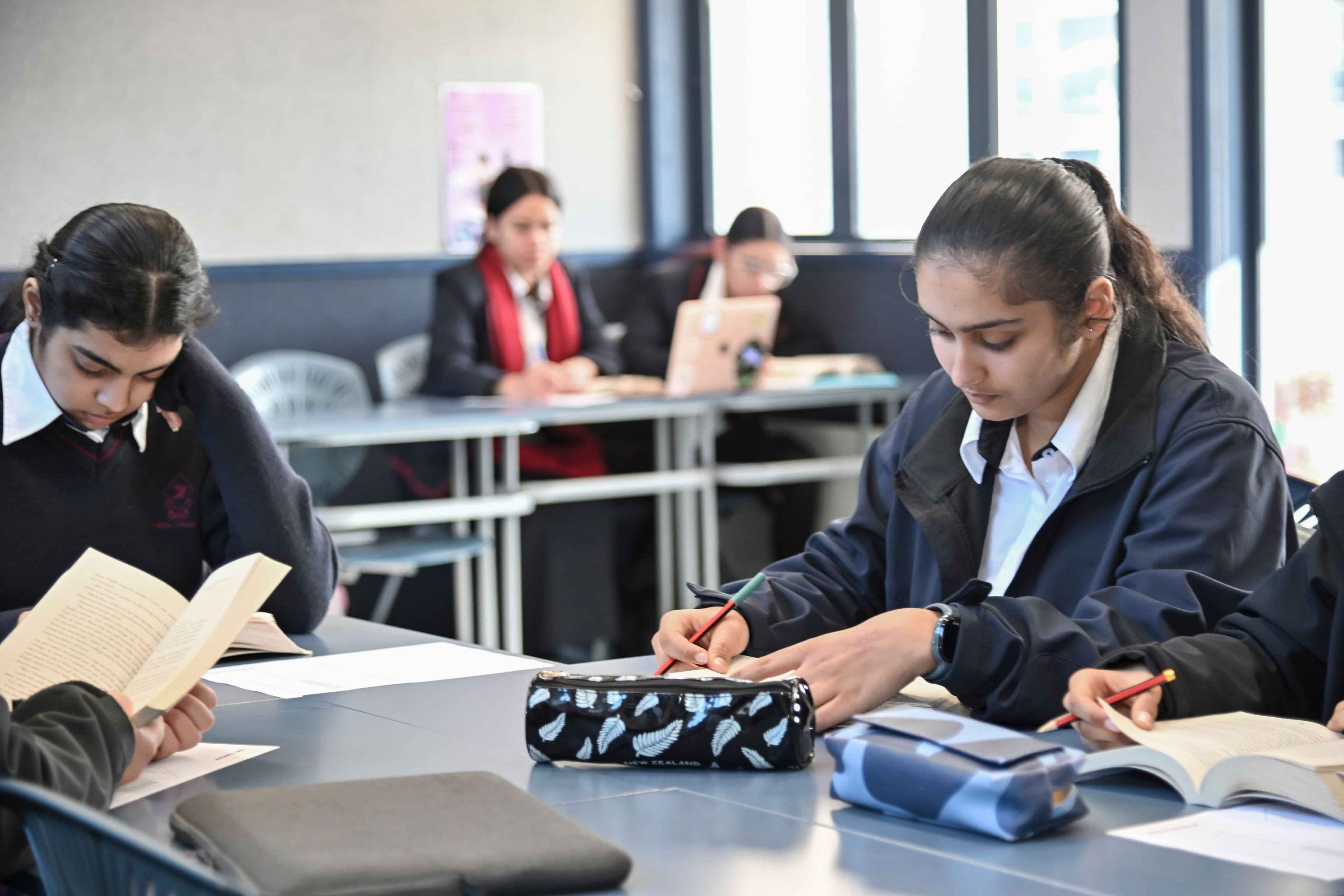
ENGLISH LANGUAGE
Level 1
English Language Learners Beginner
This class is for bilingual students who are at a beginner level with their writing, reading, listening, and oral language skills. Throughout the course of the year, all four will be worked on at various times. Students will also learn about Aotearoa New Zealand customs and culture.
Entry Guidelines: No entry guidelines
Leads to: MELLI
Teacher in Charge: Mrs M Beatty
Course Code: MELLB
English Language Learners Intermediate
This class is for bilingual students who are at a intermediate level with their writing, reading, listening, and oral language skills. Throughout the course of the year, all four will be worked on at various times. Students will also learn about Aotearoa New Zealand customs and culture.
Entry Guidelines: No entry guidelines
Teacher in Charge: Mrs M Beatty
Course Code: MELLI
MELLA (English Language Learners Advanced)
This class is for bilingual students who are at an advanced level with their writing, reading, listening, and oral language skills. Throughout the course of the year, all four will be worked on at various times. Students will also learn about Aotearoa New Zealand customs and culture.
Entry Guidelines: No entry guidelines
Teacher in Charge: Mrs M Beatty
Course Code: MELLA
Level 2
English Language Learners Beginner
This class is for bilingual students who are at a beginner level with their writing, reading, listening, and oral language skills. Throughout the course of the year, all four will be worked on at various times. Students will also learn about Aotearoa New Zealand customs and culture.
Entry Guidelines: No entry guidelines
Leads to: MELLI
Teacher in Charge: Mrs M Beatty
Course Code: MELLB
English Language Learners Intermediate
This class is for bilingual students who are at a intermediate level with their writing, reading, listening, and oral language skills. Throughout the course of the year, all four will be worked on at various times. Students will also learn about Aotearoa New Zealand customs and culture.
Entry Guidelines: No entry guidelines
Teacher in Charge: Mrs M Beatty
Course Code: MELLI
English Language Learners Advanced
This class is for bilingual students who are at an advanced level with their writing, reading, listening, and oral language skills. Throughout the course of the year, all four will be worked on at various times. Students will also learn about Aotearoa New Zealand customs and culture.
Entry Guidelines: No entry guidelines
Teacher in Charge: Mrs M Beatty
Course Code: MELLA
Level 3
MELLB English Language Learners Beginner
This class is for bilingual students who are at a beginner level with their writing, reading, listening, and oral language skills. Throughout the course of the year, all four will be worked on at various times. Students will also learn about Aotearoa New Zealand customs and culture.
Entry Guidelines: No entry guidelines
Teacher in Charge: Mrs M Beatty
Course Code: MELLB
MELLI English Language Learners Intermediate
This class is for bilingual students who are at an intermediate level with their writing, reading, listening, and oral language skills. Throughout the course of the year, all four will be worked on at various times. Students will also learn about Aotearoa New Zealand customs and culture.
Entry Guidelines: No entry guidelines
Teacher in Charge: Mrs M Beatty
Course Code: MELLI
English Language Learners Advanced
This class is for bilingual students who are at an advanced level with their writing, reading, listening, and oral language skills. Throughout the course of the year, all four will be worked on at various times. Students will also learn about Aotearoa New Zealand customs and culture.
Entry Guidelines: No entry guidelines
Teacher in Charge: Mrs M Beatty
Course Code: MELLA
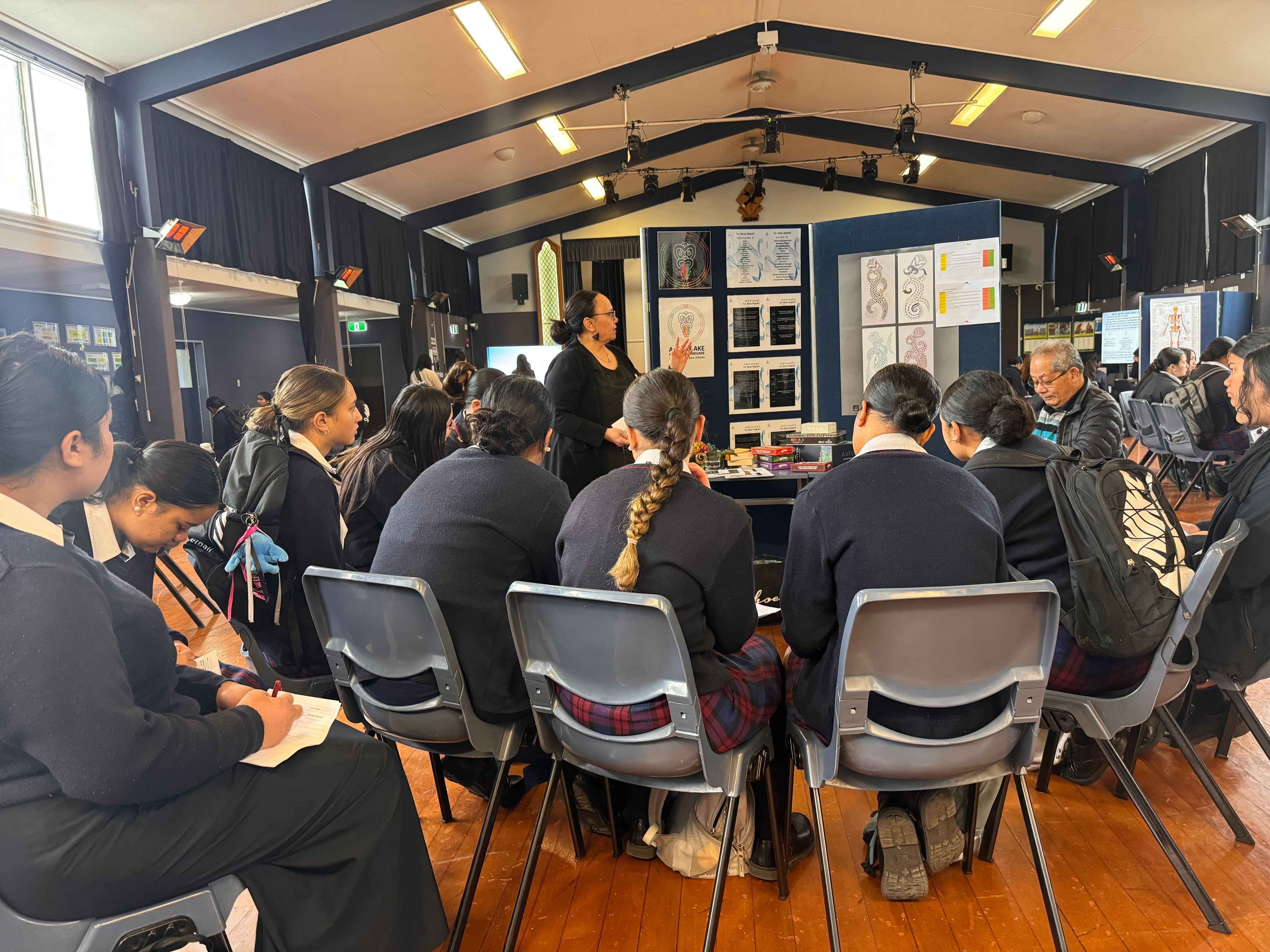
TE REO MĀORI
E Tipu e Rea mō ngā rā o tō ao. Ko tō ringa ki ngā rākau a te Pākehā
This whakataukī by Sir Apirana Ngata encourages ākonga (students) to thrive and revitalise our language as Māori. Te Reo Māori is the key to understanding the Māori world. It provides the foundation for communicative skills and cultural knowledge, enabling students to become bilingual and bicultural, with a deep appreciation and understanding of a Māori worldview.
Level 1 Academic Pathway
Te Reo Māori
Beginning of senior reo Māori allows ākonga to explore te ao Māori through the lens of ‘Ko te reo te taikura o te whakaao mārama’ - Language is the key to understanding. Ākonga will explore Te Reo Māori through five main language skills necessary for effective communication, namely listening, speaking, reading, writing and cultural awareness, that are interrelated, and this will be reflected in the teaching and learning programme for Te Reo Māori.
Ākonga will work through a range of kaupapa that will support them to demonstrate a contextual understanding of Te Reo Māori with accuracy, fluency, and cultural integrity.
Ākonga voice is used to help inform our overarching kaupapa.
Entry Guidelines: Some learning experience in Year 9 and 10 te reo Māori is preferred to begin at this level
Leads to: Level 2 Te Reo Māori
Teacher in Charge: Whāea Candyce
Course Code: 1TREO
Level 2 Academic Pathway
Te Reo Māori
At Level 2, ākonga engage in research projects and learn skills to convey informed perspectives and opinions in a variety of different contexts in te reo Māori. Ākonga are required to provide examples and explanations of ideas and support this using evidence.
Through the different contexts, ākonga will learn a wide variety of language skills and build on vocabulary, language structures, and confidence to engage in kōrero, whakarongo, pānui and tuhi in te reo Māori.
Ākonga voice is used to help inform our overarching kaupapa.
Entry Guidelines: Level 1 Te Reo Māori
Leads to: Level 3 Te Reo Māori
Teacher in Charge: Whāea Candyce
Course Code: 2TREO
Level 3 Academic Pathway
Te Reo Māori
At this level of te reo Māori, ākonga will explore and research a range of historical, present, and future-focused kaupapa in te ao Māori. Ākonga will learn to think critically and analytically about te ao Māori and how they (can) contribute to the ongoing revitalisation and preservation of te reo Māori, tikanga Māori and kaupapa Māori.
Through the different contexts, ākonga will learn a wide variety of language skills and continue to build on vocabulary, language structures, and confidence to engage in kōrero, whakarongo, pānui and tuhi independently.
Ākonga voice is used to help inform our overarching kaupapa.
Entry Guidelines: Level 2 Te Reo Māori
Leads to: UE Entrance Subject. Ākonga can explore a range of different contexts in higher education relating to te reo Māori, and te ao Māori.
Teacher in Charge: Whāea Candyce
Course Code: 3TREO
GAGANA SĀMOA
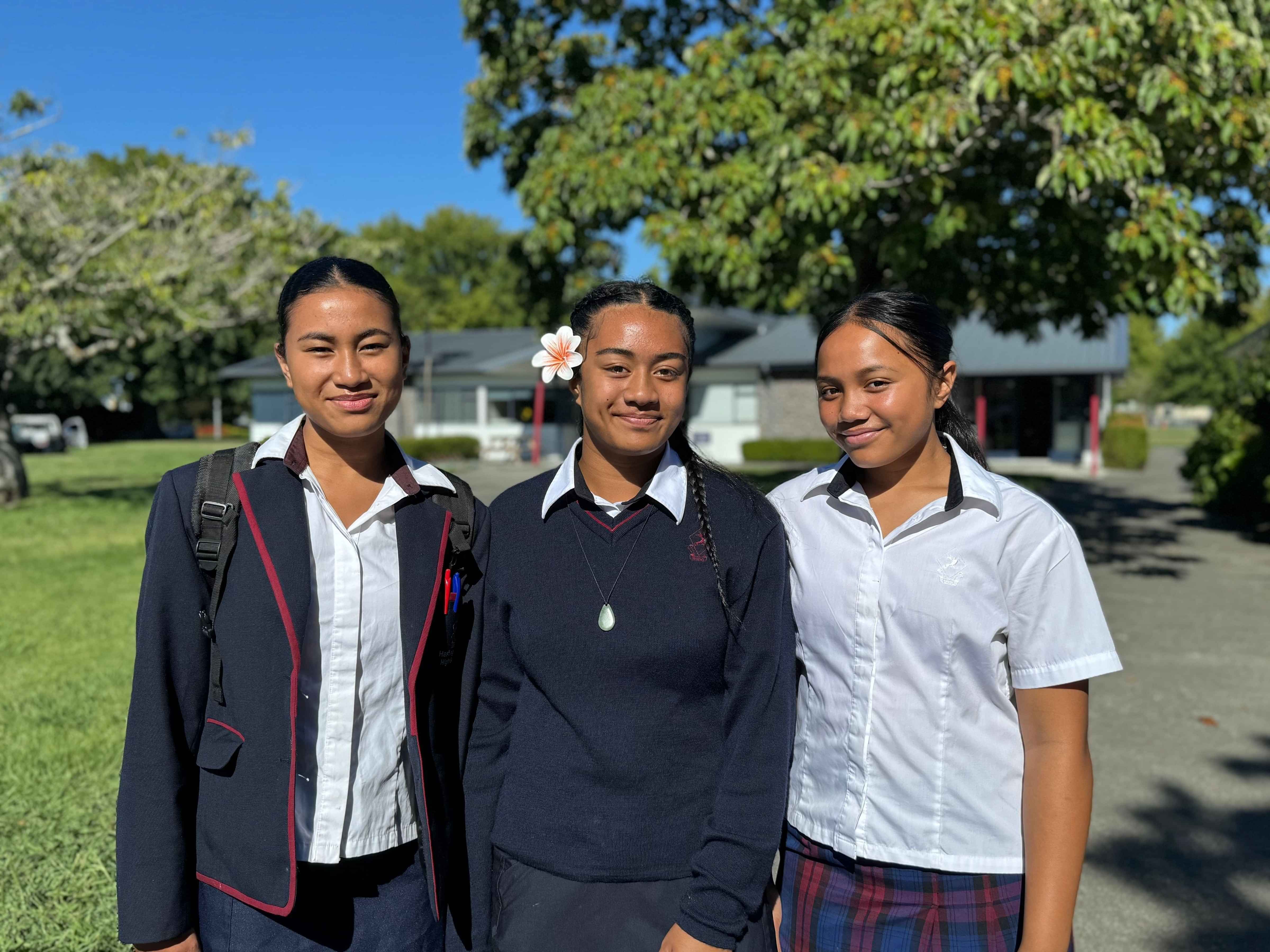
Level 1 Academic Pathway
Gagana Sāmoa
Gagana Sāmoa has been introduced to build the language and cultural knowledge in fa’asamoa. The course offers an opportunity for students to build their language skills as well as their understanding of the different aspects of Gagana Sāmoa. They will also be able to experience cultural practices and protocols. Speaking a basic fluency of the language is needed for students to reach their full potential in the subject.
Entry Guidelines: Students will need basic fluency in Sāmoan as a first language and be able to hold a conversation in Sāmoan
Leads to: Level 2 Sāmoan
Teacher in Charge: Mr T Samuelu
Course Code: 1SAM
Level 2 Academic Pathway
Gagana Sāmoa
Gagana Sāmoa is the continuation of the Level 1 Gagana Sāmoa course. We will be exploring the cultural customs in more depth and the different language dialects used in society. The course will be built around historical events, the placement of tamaita’i Sāmoa in society, and the relationship between New Zealand and Sāmoa.
Entry Guidelines: Level 1 Sāmoan
Leads to: Level 3 Sāmoan
Teacher in Charge: Mr T Samuelu
Course Code: 2SAM
Level 3 Academic Pathway
Gagana Sāmoa
This course will be a continuation of the Level 2 course exploring the cultural aspects of aganu'u fa'asamoa in more depth. There will be more opportunities for students to take part in practical tasks with one-on-one lessons with cultural experts. Students will also have an opportunity to connect with community groups but also expand their knowledge and expertise with schools outside of Hawke's Bay.
Entry Guidelines: Level 2 Sāmoan
Leads to: Gagana Sāmoa tertiary level
Teacher in Charge: Mr T Samuelu
Course Code: 3SAM
FREQUENTLY ASKED QUESTIONS
How do I choose my Subjects?
You need to ensure your individual courses best suit your particular abilities, interest, and learning needs AND that you have pathways through to Year 13.
Your ideal course of study will:
contain subjects that you are interested in and passionate about
contain subjects you feel confident you will achieve in and/or provide new skills
meet the literacy and numeracy requirements at each level
allow for a variety of career paths
If you are unsure of the most appropriate pathway then you must:
Read the website information which provides information for each course and talk with your Ākina Coach.
Ask teachers what is in the course at each level.
Book an interview with Whaea Evelyn, Mr Gibbons or your House Dean. You may also want to speak to a Head of Department if your question is subject specific. This can be with your whānau/aiga if they would like to be there.
Visit the careers office to check on subjects required for specific careers, further study or vocational employment/trades.
Is there an opportunity to gain scholarship
The opportunity to attempt the scholarship examination in one or more courses will be available to Year 12 & 13 students. There will be timetabled classes for Year 13 students. Nationally, scholarships are awarded to the top 2% or 3% of students in subject areas. If you think you would like to take scholarship classes and exams talk to your teachers and Whaea Evelyn.
If a decision is made to proceed, teachers will help prepare students during normal class and subject tutorial times. Students attempting to obtain a scholarship will be required to either sit an external exam in addition to their Level 3 external exams or submit additional portfolio work over and above their submissions presented to achieve Level 3. Hawke’s Bay Principals’ Association run an external scholarship programme for all students in Hawke’s Bay – see Whaea Evelyn for information.
Scholarship awards are available to New Zealand citizens or permanent residents only. Scholarship awards attract a one-off payment of $500 per subject with a maximum payment of $1000. Special awards of a higher monetary value are available to students gaining three or more scholarship awards. More specific details are available from the school.
Students are encouraged to take scholarship classes to develop their critical thinking and deep conceptual subject knowledge. Scholarship candidates are expected to demonstrate high-level critical thinking, abstraction and generalisation, and to integrate, synthesise and apply knowledge, skills, understanding, and ideas to complex situations. Scholarship subjects are assessed through examinations and these may be written or performance exams.
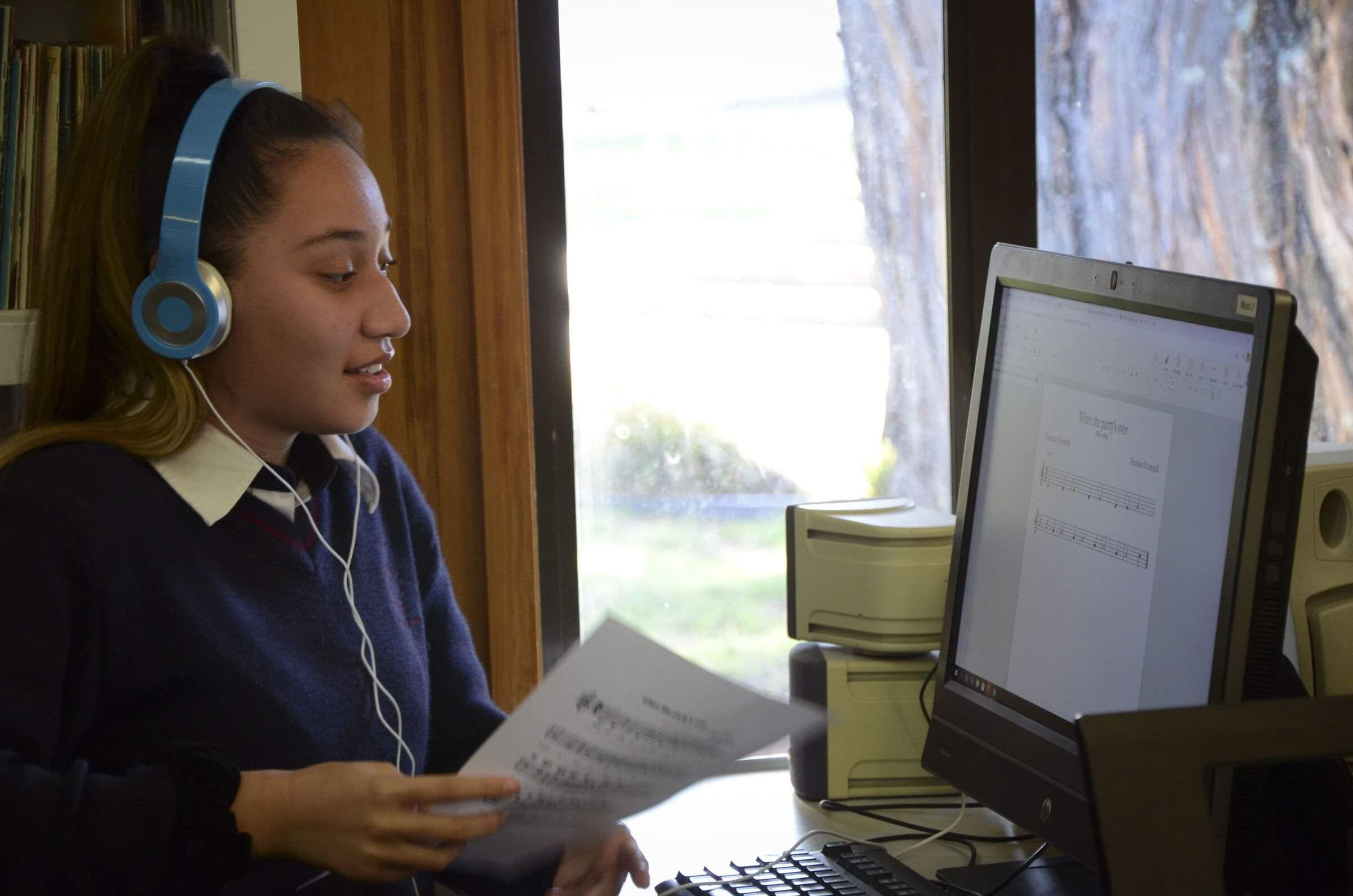
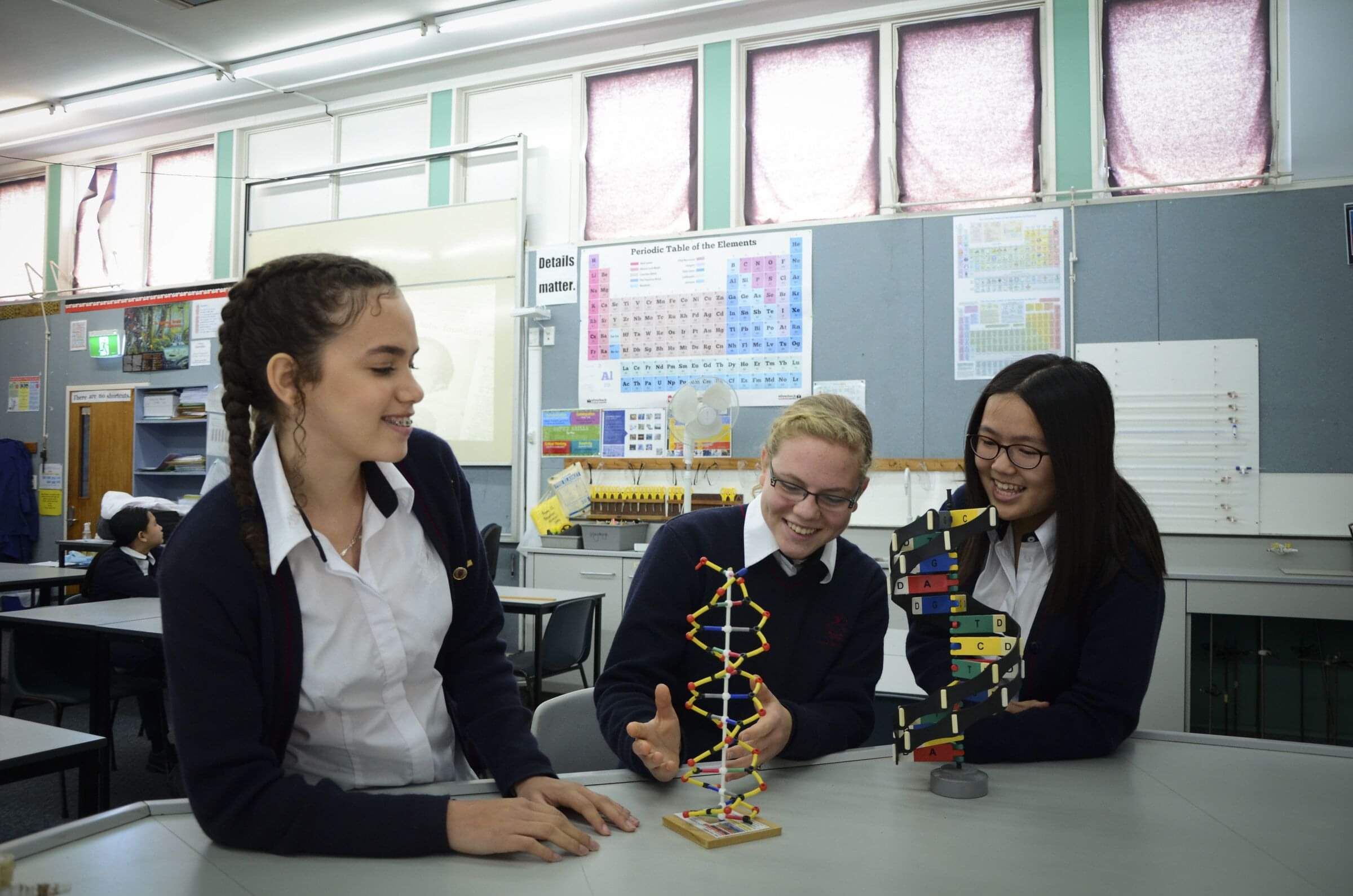
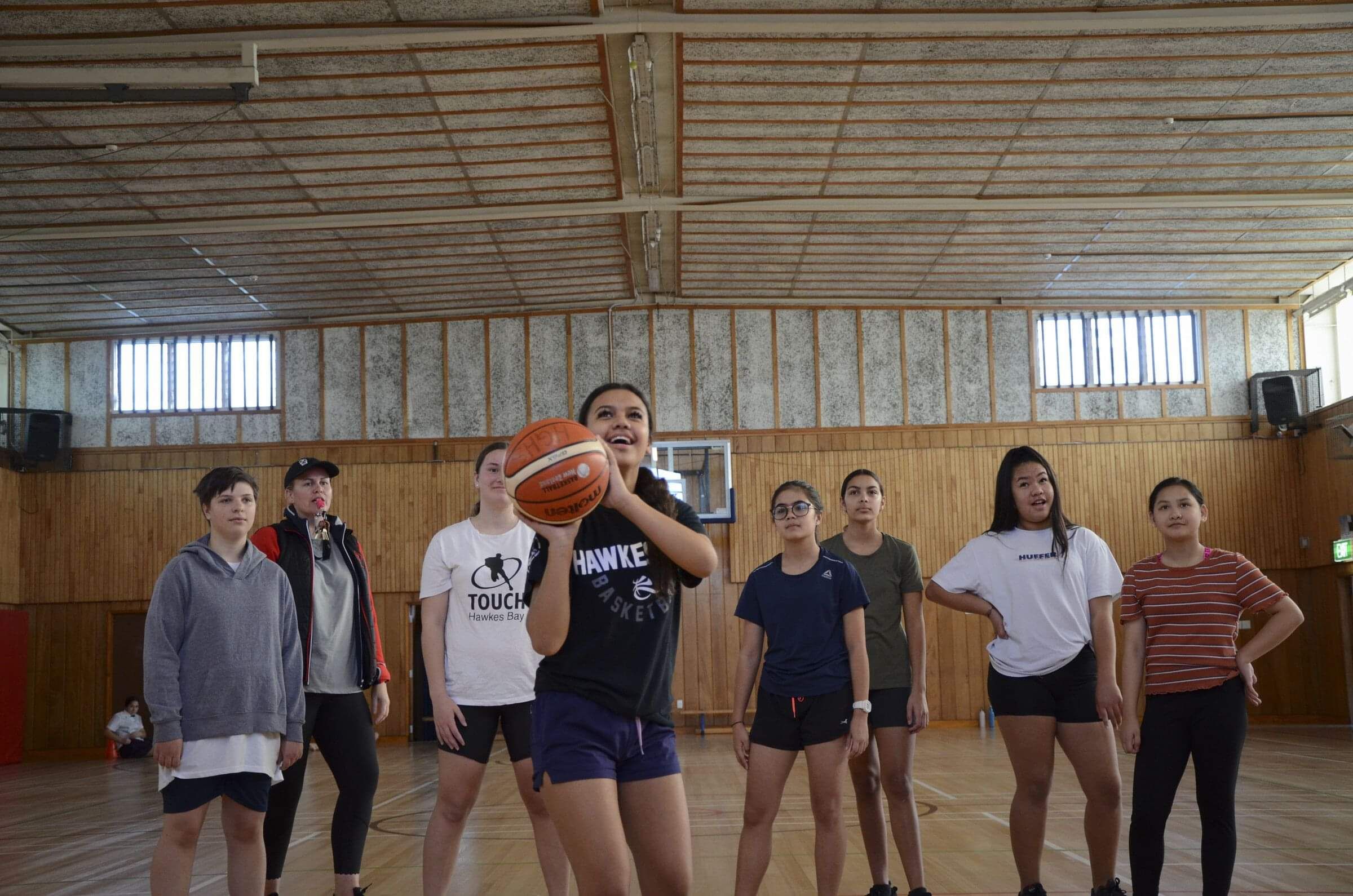
How many Subjects can I choose?
Level 1 Courses
You need to take six subjects at this level. You must choose a course from Mathematics and English for NCEA Level 1 Literacy and Numeracy.
Level 2 Courses
You need to take six subjects. An English or English combined course is compulsory as it gives you the required Literacy credits for further study. An application not to take English can be made to your House Dean who will ensure that you have option choices that give you UE Literacy in Year 12.
You must check entry requirements for some universities or the more competitive courses, as they require far more than the minimum entry requirements for automatic acceptance.
You should opt for a broad range of subjects to keep all possible future pathways open. From Year 12 there are a number of vocational pathway opportunities available on a Friday. These include the Police Pathways Preparation Programme, EIT Trades Academy and Gateway courses.
Level 3 Courses
You need to select 5 subjects and 1 Study. Students may choose a subject from a different level that is a new skill area or a vocational subject/trade.
Can I do courses at different levels?
You can choose courses at different levels if you have strengths in some subjects. You will need to talk with your teacher, your House Dean, Whaea Evelyn, and your parents.
Can I do any subject?
If you have a genuine commitment to a subject not taught at Hastings Girls’ High School we may be able to offer something offline. Please talk to Whaea Evelyn or Mr Pera about this.
Will I definitely get all my choices?
You will certainly get the bulk of your choices and we do our best to run all subjects. Sometimes classes may be mixed year groups to do this. The running of each course is dependent on student numbers.
Multilevel Courses
Some subjects offer their courses in multi-level classes. This allows students to achieve to their potential and learn from each other.
NCEA Scholarship Courses
The opportunity to attempt the scholarship examination in one or more courses will be available to Year 12 & 13 students. There will be timetabled classes for Year 13 students. Nationally scholarships are awarded to the top 2% or 3% of students in subject areas. If you think you would like to take scholarship classes and exams talk to your teachers and Whaea Evelyn.
If a decision is made to proceed, teachers will help prepare students during normal class and subject tutorial times. Students attempting to obtain a scholarship will be required to either sit an external exam in addition to their Level 3 external exams or submit additional portfolio work over and above their submissions presented to achieve Level 3.
Scholarship awards are available to New Zealand citizens or permanent residents only. Scholarship awards attract a one-off payment of $500 per subject with a maximum payment of $1000. Special awards of a higher monetary value are available to students gaining 3 or more scholarship awards. More specific details are available from the school.
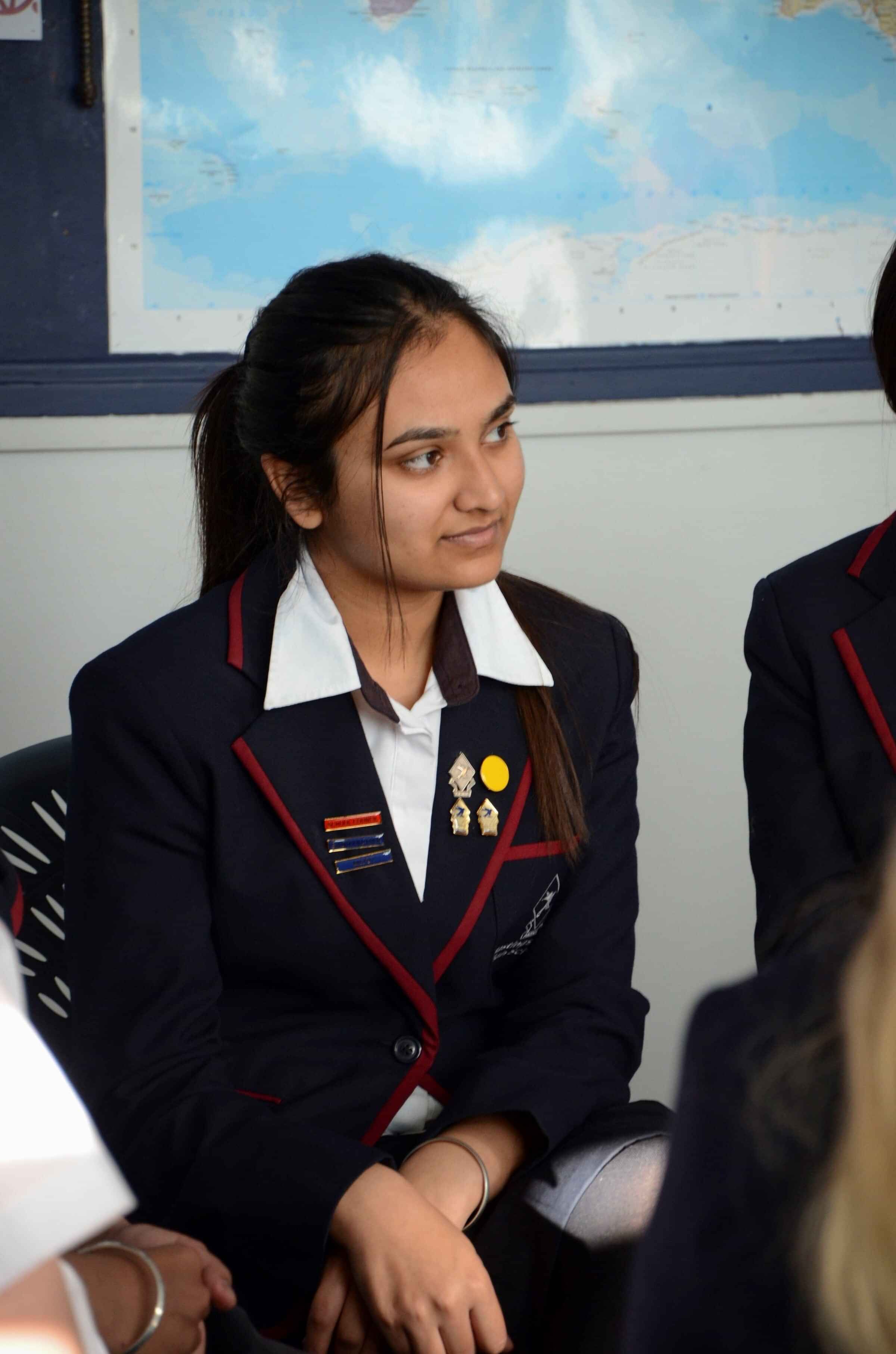
How many credits do I need?
Courses for next year will generally offer between 15-20 credits per course, and 25-30 credits for a combined course. Over the full year you will need to accumulate a minimum of 60 credits in total to be awarded the certificate at each level.
To complete NCEA Level 1, you need 60 credits at Level 1 or above plus an additional 10 Numeracy and 10 Literacy credits. With the new standards, it is a requirement for you to pass 10 Numeracy and 10 Literacy credits to successfully complete the course.
To complete NCEA Level 2, you need 60 credits.
To complete NCEA Level 3, you need 60 credits .
How do I get endorsement at NCEA?
Course endorsement provides recognition if you perform exceptionally well in individual courses. Endorsement requires at least 14 credits at Excellence or Merit for that particular level of endorsement. At least 3 credits must come from externally assessed standards.
NCEA Certificate endorsement requires you to achieve at least 50 credits at Excellence or Merit to gain Certificate endorsement at that level.
OTHER INFORMATION
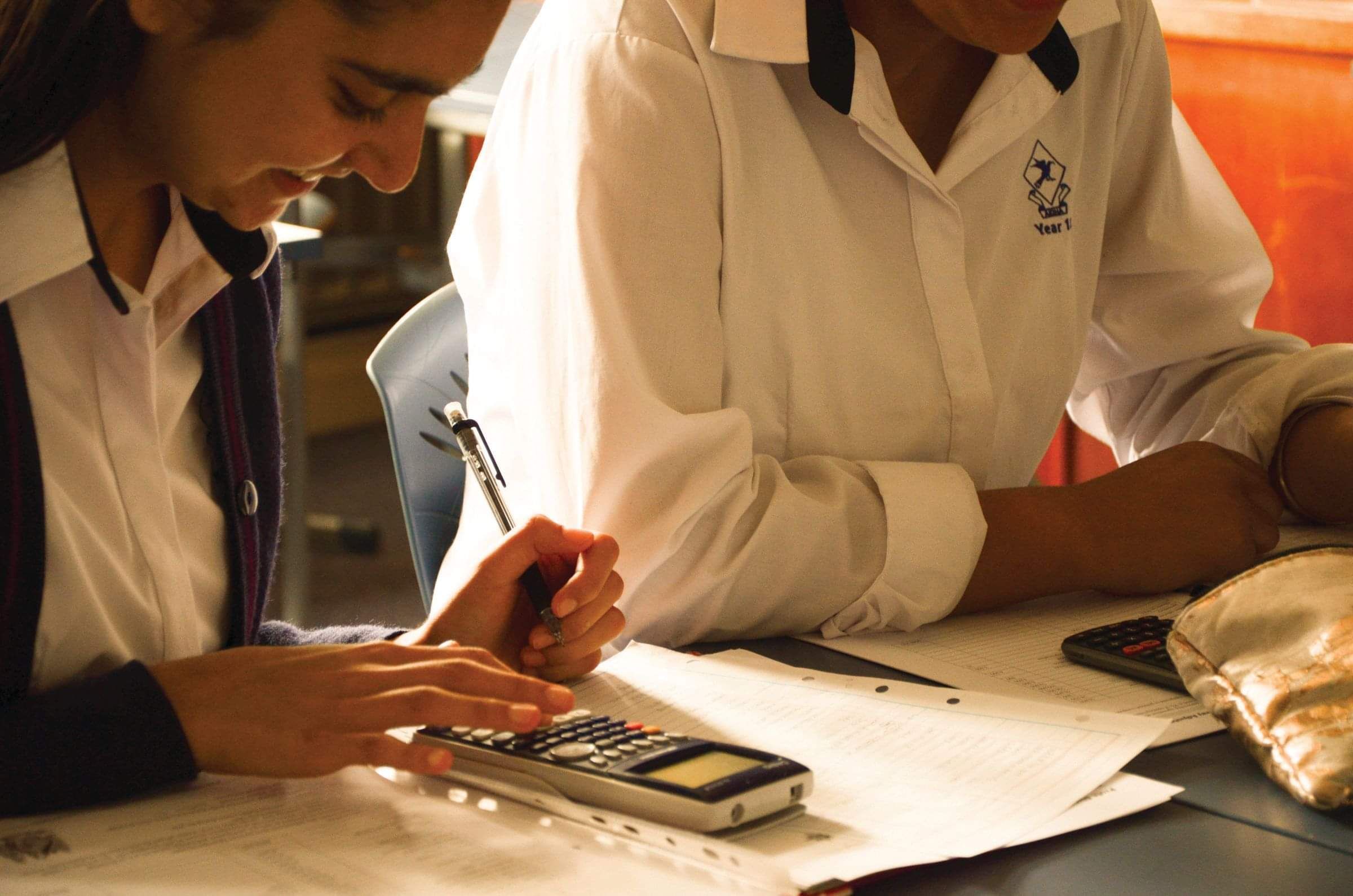
Financing your Future Study
Universities, EIT and other Polytechnics offer scholarships to assist with either fees and/or accommodation costs. To be eligible for most university scholarships students need to have achieved Level 2 endorsed with Merit or better.
In addition to academic performance applicants are considered on the basis of involvement in cultural, arts or sports extracurricular as well as community service. Community involvement is highly valued and can be within or outside of school. Year 12 and 13 students are strongly encouraged to take part in some kind of community service.
Study Link - Student Loans
You need a RealMe login to apply online and access MyStudyLink.
If you’re applying for a Student Loan or Student Allowance for the first time, you will need to send Study Link evidence of your identity, e.g. a copy of your Passport or Birth Certificate using Connect.
